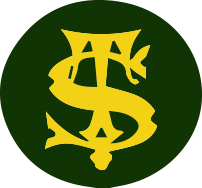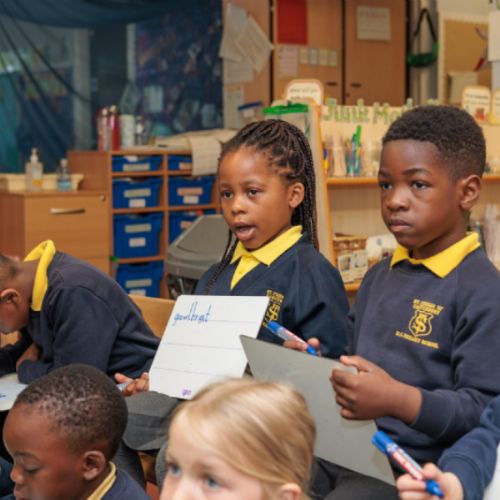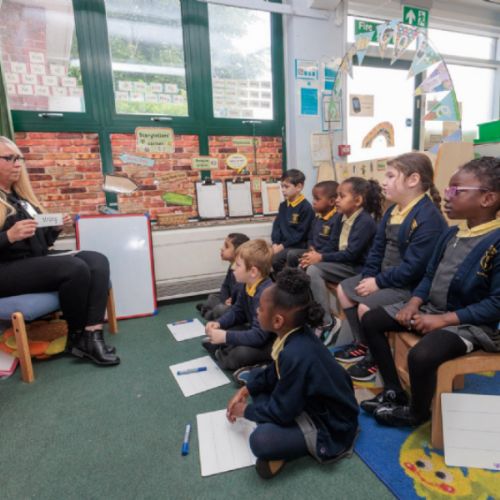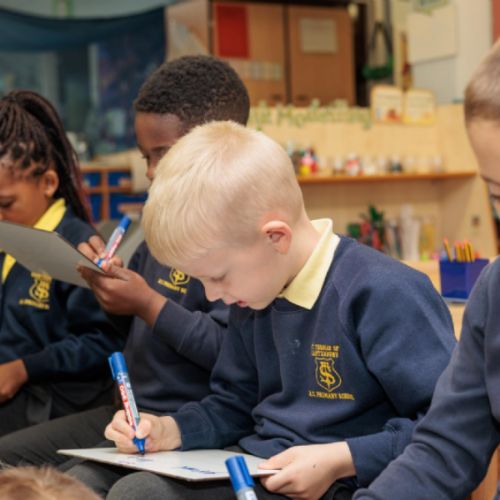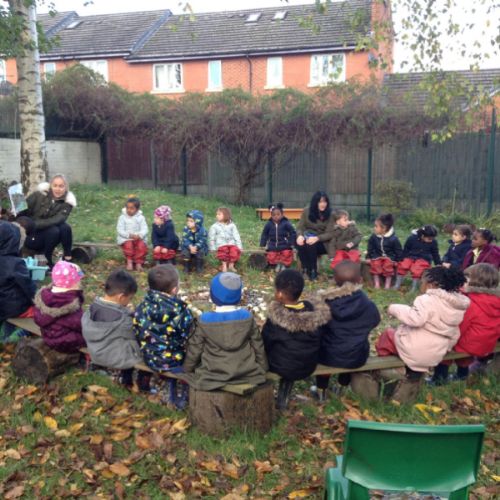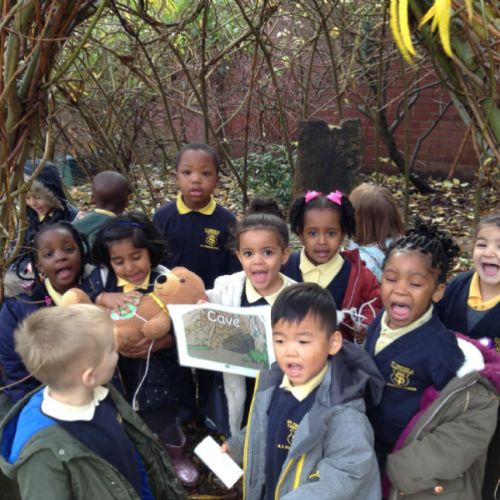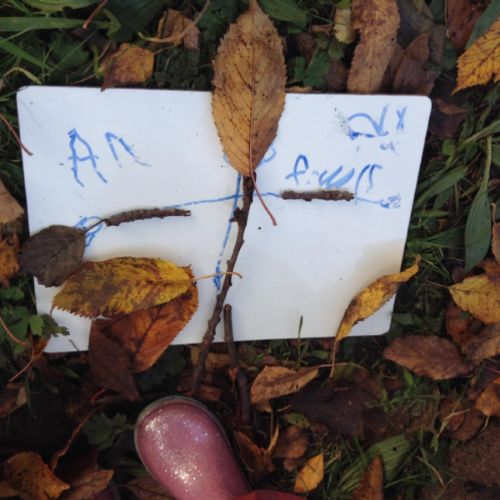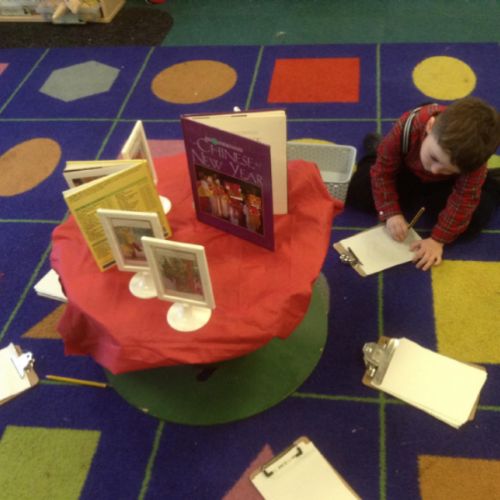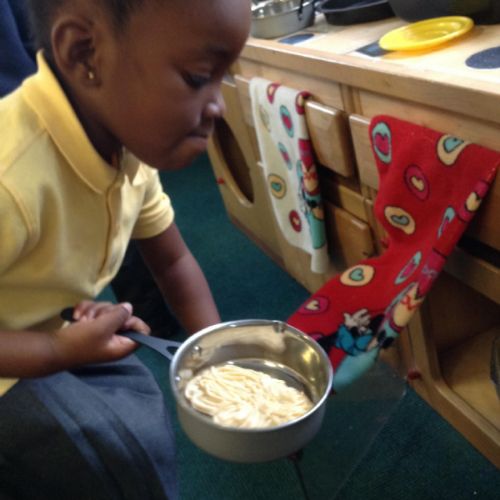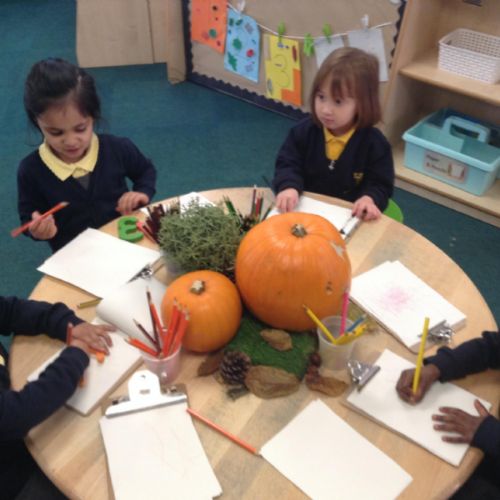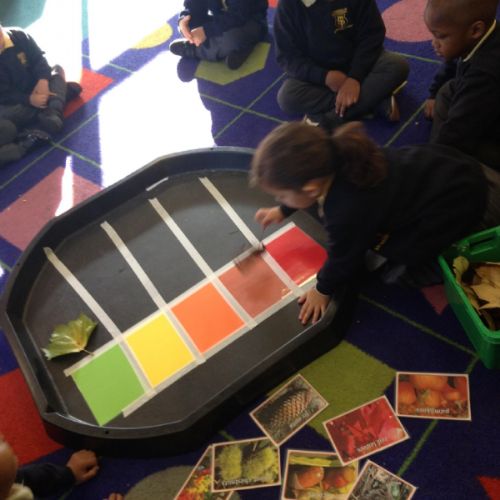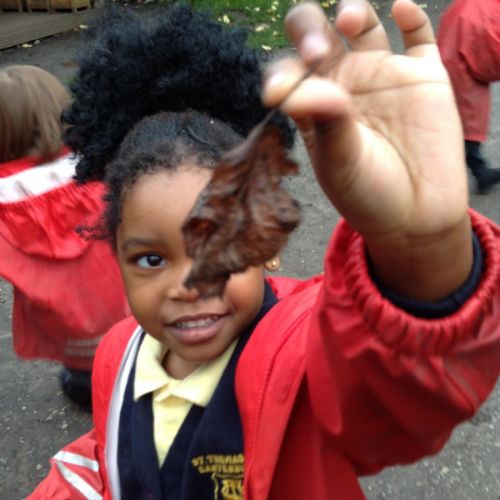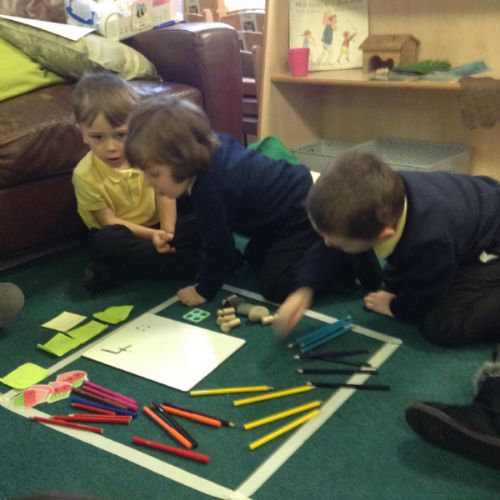Early Years Foundation Stage

‘Truly I tell you, unless you change and become like little children, you will never enter the kingdom of heaven. Whoever welcomes one such child in my name welcomes me.’
Matthew 18:2-6
We hope parents and carers find the information provided below useful and informative. We are here to help and support families in any way that we can. If you require additional support or information, please just let us know. We would be happy to arrange a meeting for you with your child’s class teacher.

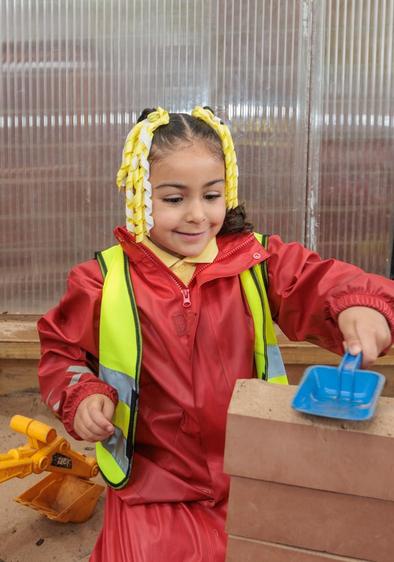
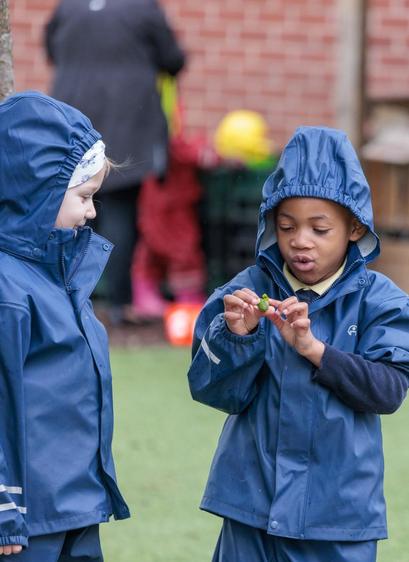
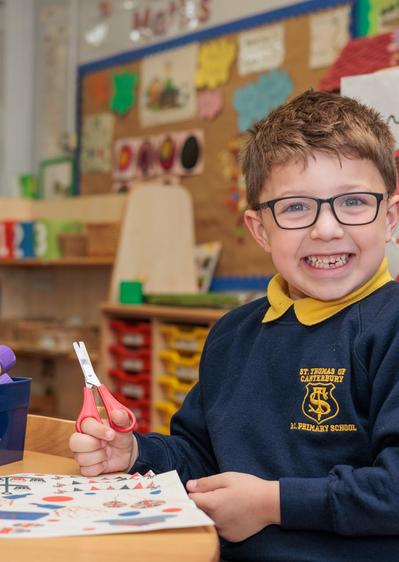
We strive, each day, to afford our children every possible opportunity to reach their innate potential and, for now and the future, to realise their own dreams and ambitions. We know that one of the most significant contributors to success for our children will be the people who journey through their education with them: their parents and carers, teachers and support staff. We pride ourselves in the quality of our staff team: their knowledge, skills and dedication. Joint effort, enthusiasm and shared knowledge of each pupil’s needs is a vital starting point, and one which must be actively established and sustained over time. The connections we establish with children’s parents and carers are essential to pupils having the support they need to thrive, personally and academically. We commit each year to offering support through teacher meetings, workshops and invitations for families to come and spend time together in school.
We pay enormous heed to the Prime Areas of Learning, knowing, without doubt, that the fate of all other areas of learning rests on these. For our children, we have no time to ‘wait and see’. Curriculum learning and intervention must be delivered effectively, but also in a timely manner. We must be skilled in our use of time; the school day is only made up of so many hours after all. Children with concerning starting points undoubtedly need time to develop through playful experiences and child led enquiry; however this alone will not sustain them nor provide them, in later years, with an equal chance of success in their Primary and Secondary education. Lost ground must be recovered; we must achieve this in a way that is engaging and enjoyable for the children, but ambitious none the less.
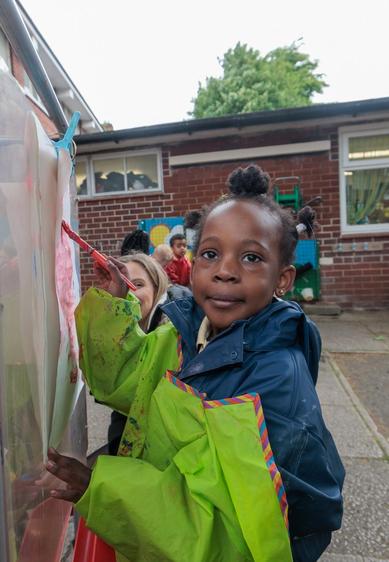
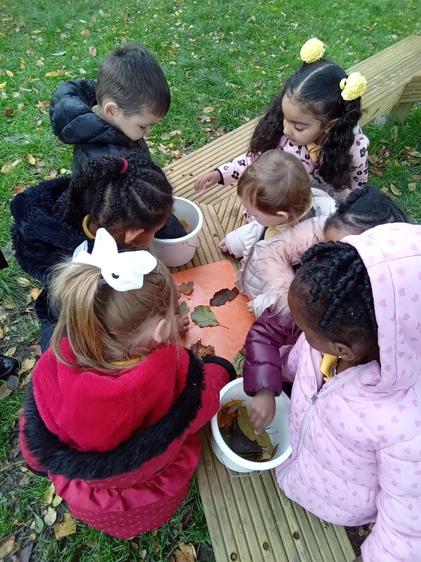
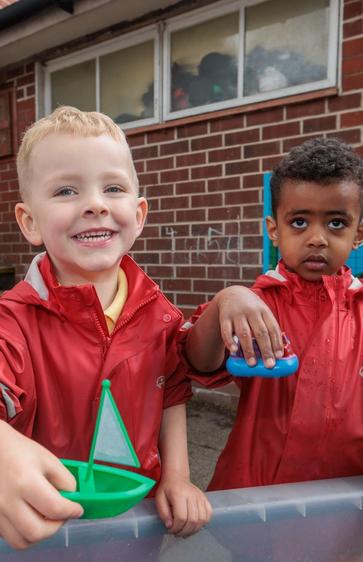
The intent of our Early Years Foundation Stage, through use of knowledgeable and passionate staff, an enabling environment and a bespoke curriculum, is to equip children with the key language skills and confidence they need to thrive in the Year 1 classroom and beyond. To empower them as they steer forward their own learning, so that they have the appetite that a true learner requires: seeking knowledge, acquiring skills and revelling in new experiences, not because they are expected to, but because they want to. We want all children to discover the joy of learning and to see and feel for themselves an undeniable transformation from one term to the next.
The importance of becoming a reader is front and centre throughout our key stage. Children’s minds and brains are shaped from birth to prepare them for engagement with stories: we see this in their acquisition of language and their drive to make connections with the people and the events in the world around them. Both pave the way for being read to and ultimately reading for themselves. For many of our children, this path is not as defined nor developed as it could be; much work is still to be done. Our intention is to be relentless and unapologetic in addressing head on what is needed: dedicating time and resources for children to master phonics; providing quality interventions for speech and language difficulties for all who need them; offering a daily diet of rich and engaging stories and story based learning. With all such components reliably in place, we can start to weave together the fundamental threads of early reading that we know so well.
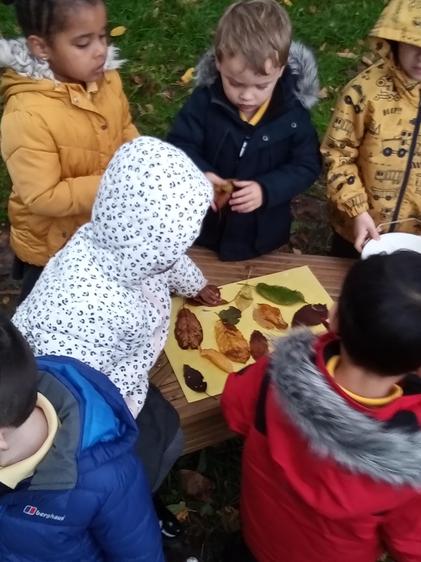
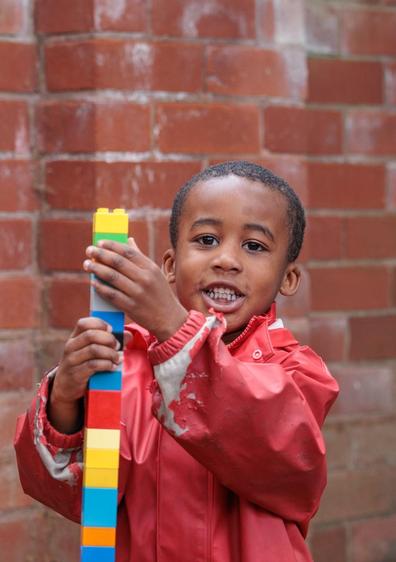
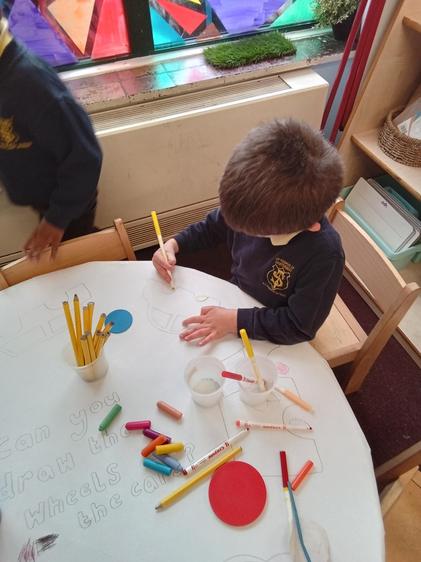
Our whole school commitment to Character Development, which in Early Years includes a strong focus on the Characteristics of Effective Learning, is at the heart of our curriculum offer. We pride ourselves in the willingness and confidence with which pupils approach learning experiences. For such young children, this goes hand in hand with the warm and nurturing relationships that all staff establish with pupils. From these early connections grows trust and a climate where children feel safe to be themselves, explore and take risks. Children learn quickly that what they cannot accomplish can be termed ‘not yet’, as everyone has the potential to keep trying and succeed.
No two children are the same. We seek for children to discover the wonder of their uniqueness and to grow safe in the knowledge that they are special, important and valued. Where differences between children leaves a pupil or group of pupils at a disadvantage, we seek to counter this by finding the barriers that exist and tackling these head on. For children with additional needs, we must endeavour to learn as much as we can about them as an individual and build a trusting relationship that will underpin any teaching and learning ambitions. Only then can we provide a curriculum that is finely tuned to their specific needs and starting points, whilst being carefully informed by information from their parents and other professional colleagues. We consider regular review and reflection on progress to be vital in guaranteeing no child is left behind, nor overlooked: for the most vulnerable of children, we must show that our dedication and ambition is on par with every single pupil in our school.
For every child in our school, we strive to bring to life the true wonder of learning and to share with them the joy and sense of belonging that our school community offers.
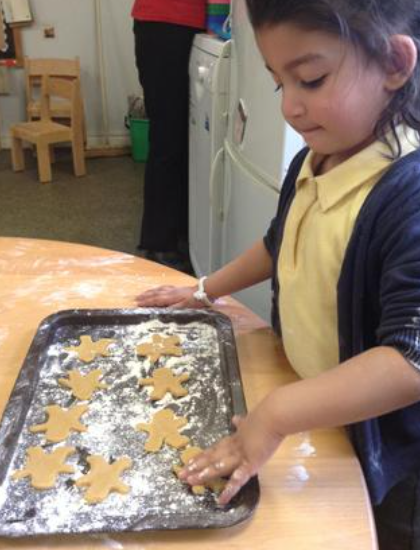
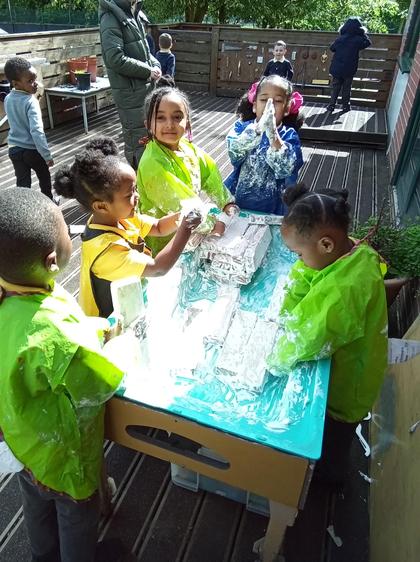
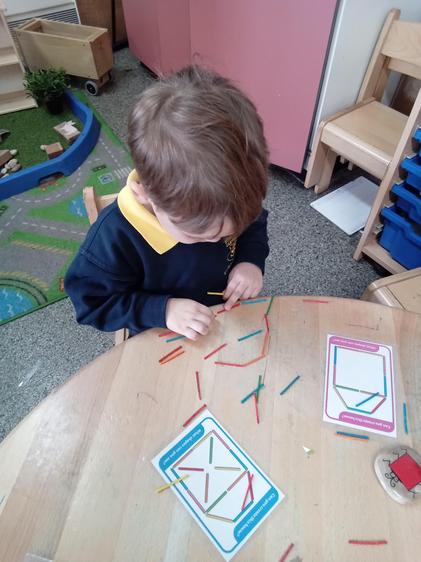

Within our classrooms, indoor and outdoor, learning is a blend of direct teaching (in small groups or 1 to 1) and, importantly, child-led use of the provision. Every effort is made so that children can consolidate new learning, including newly taught vocabulary, but also make their own inquisitive exploration; combining these to solve problems or pose their own questions and lines of enquiry. The timetables in both Nursery and Reception are busy and highly structured to ensure that no opportunity is wasted; however the school day from the children’s point of view is less structured, flows smoothly and allows for a range of playful and engaging experiences in all areas of the provision.
The curriculum offered within our Early Years Foundation stage covers all content from the EYFS Educational Programmes, which form part of the EYFS Statutory Framework (linked below). In order to meet these expectations, we, as a school, have adopted the ‘Development Matter 2021’ framework and use this, with some school specific additions, to plan the curriculum we offer to pupils.
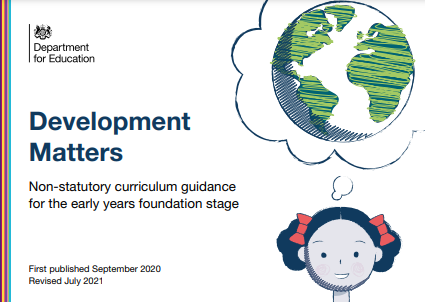
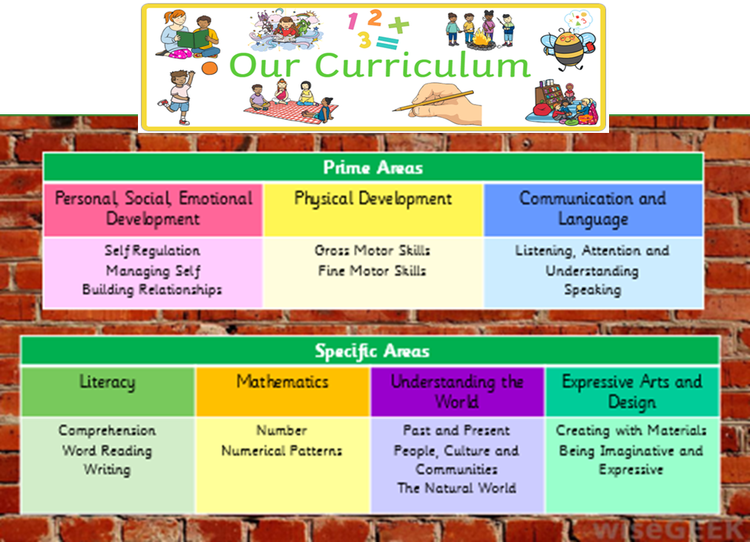
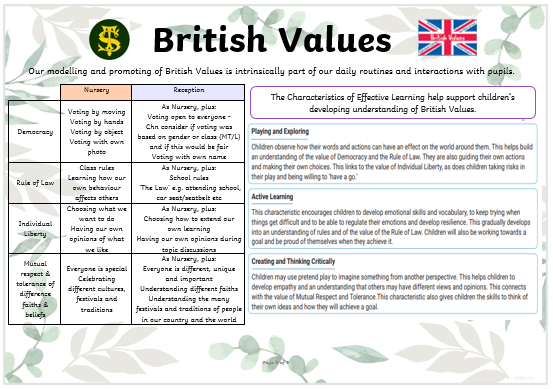

Within our Early Years Foundation Stage, the first priority of all staff is to get to know and nurture all pupils: helping them to enjoy school life, feel both comfortable and confident, and support them in making new connections - be that with staff, with other children or with the world of play and imagination that surrounds them.
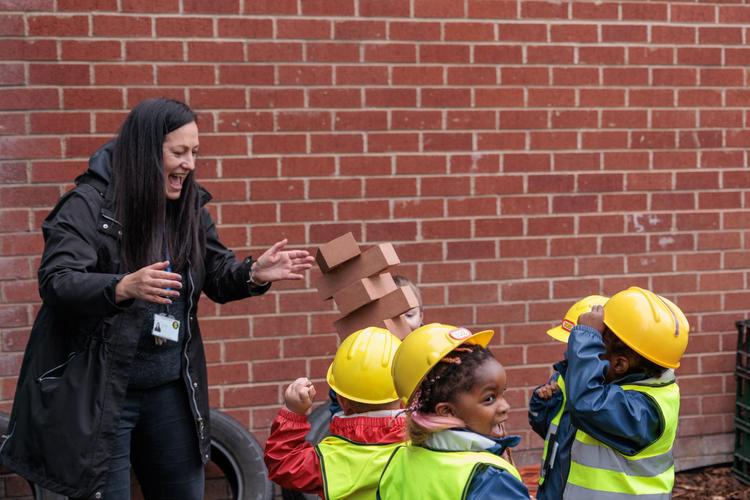
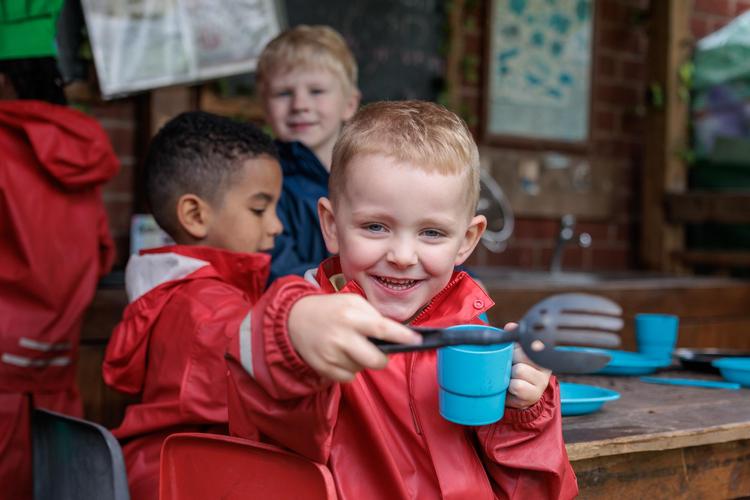
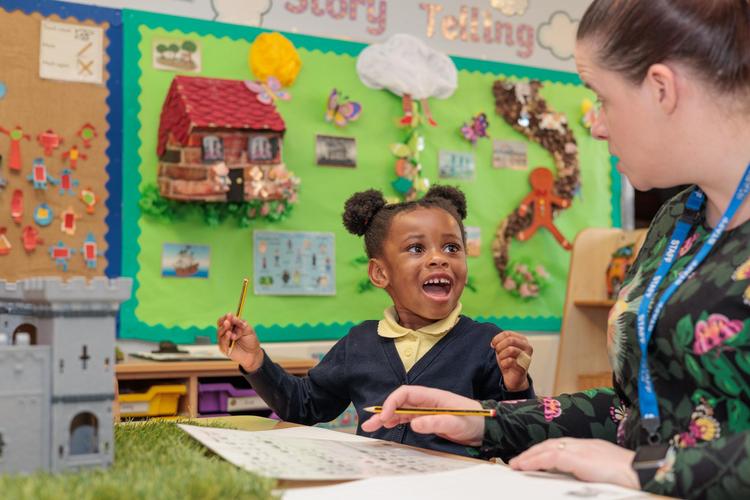
Staff pay heed to the Characteristics of Effective Learning and how developing a ‘Growth Mindset’ can enable children to try new experiences and persevere with newly taught skills, such as balancing on one leg or fastening their own zip. As a whole school, we focus on building up strong ‘self-belief’ in all of our pupils, which starts with our own high ambitions of what they can achieve.

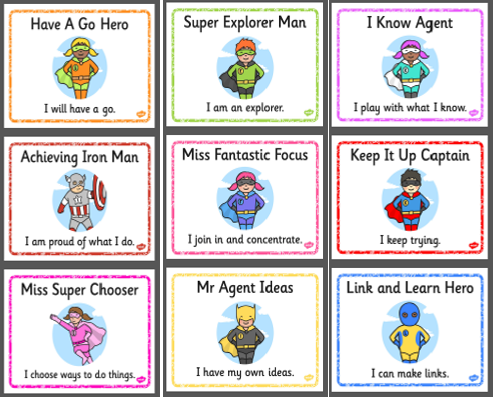
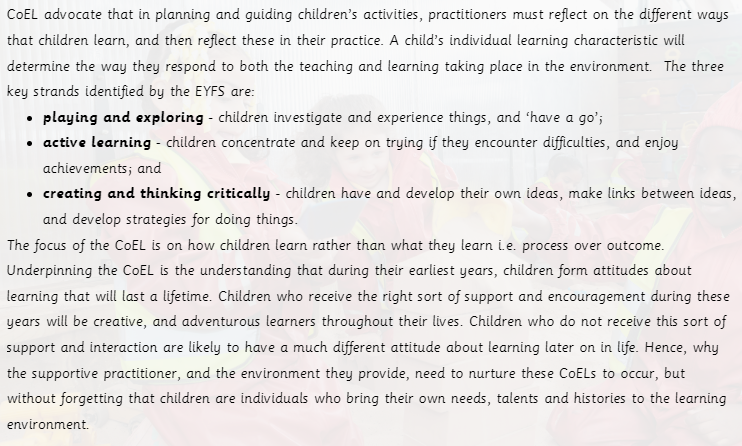
The skill of self-regulation is supported by staff in many ways. One is having a clear picture of the child’s current ability to understand what is said to them and their ability to express themselves, verbally or non-verbally. Barriers in either or both of these areas will hinder new learning, but are also likely to be a cause of great frustration for the child. Strong and flowing communication is vital in terms of all child feeling ‘heard’ and ‘seen’ in the class and in staff meeting their needs effectively. Children learn the importance of valuing and respecting one another and staff support and celebrate children’s growing ability to share and turn-take.
Staff ensure that children know what to expect; this is achieved by clear and consistent routines being established in each class alongside a set of simplified ‘class rules’. Both help children begin to ‘self manage’ themselves within the provision, seeking support as and when needed.
The importance of building positive relationships, between school and home, between staff and children and from peer to peer, is never underestimated. Such strong and supportive relationships are forged through mutual trust and respect and a shared vision of what we want to achieve in our school community, which spans much wider than just our academic success. As staff, we help children to understand the need for cooperation and support them to increasingly be able to cooperate with others, find solutions to disagreements, and develop a growing sensitivity to the needs and feelings of others.
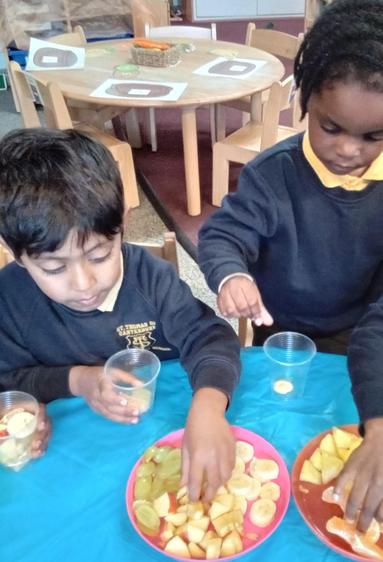
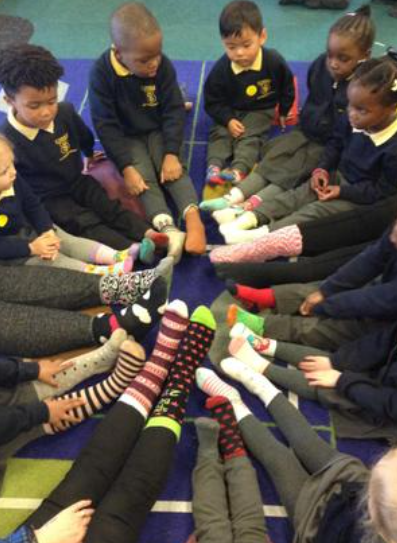
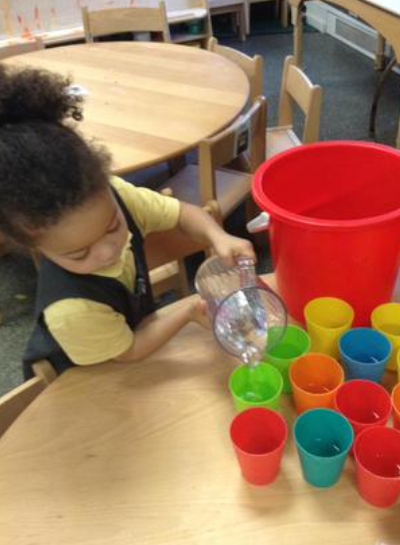
As a school, we have recently introduced a new scheme for the teaching of Social and Emotional learning called ‘Think Equal’. The key concepts taught as part of this programme include:
- Empathy
- Inclusion and celebration of diversity
- Emotional Regulation
- Decision Making
- Resilience
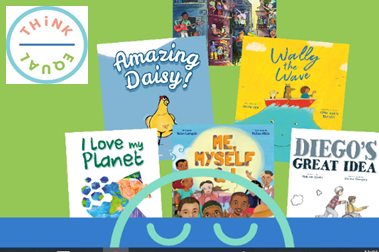
All children across Nursery and Reception are taught what it means to make healthy choices. This includes a healthy diet, exercise, high quality sleep and limited screen time. Staff help children to look into each of these topics and learn about how our choices effect our bodies. To help children learn how good hygiene can impact our health positively, we invite our school nurses in to share a 'hand- washing' workshop in the classroom. The children are always excited to welcome these 'real life superheroes' and every year manage to impress them with their great listening and their knowledge of being healthy!
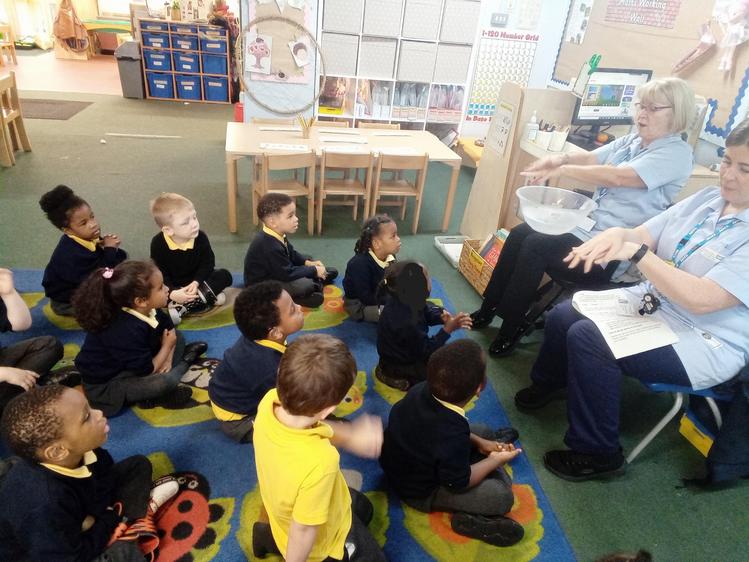
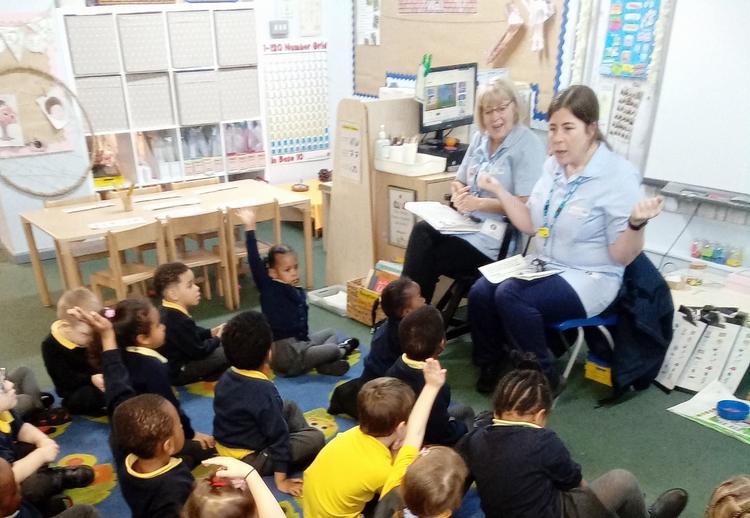
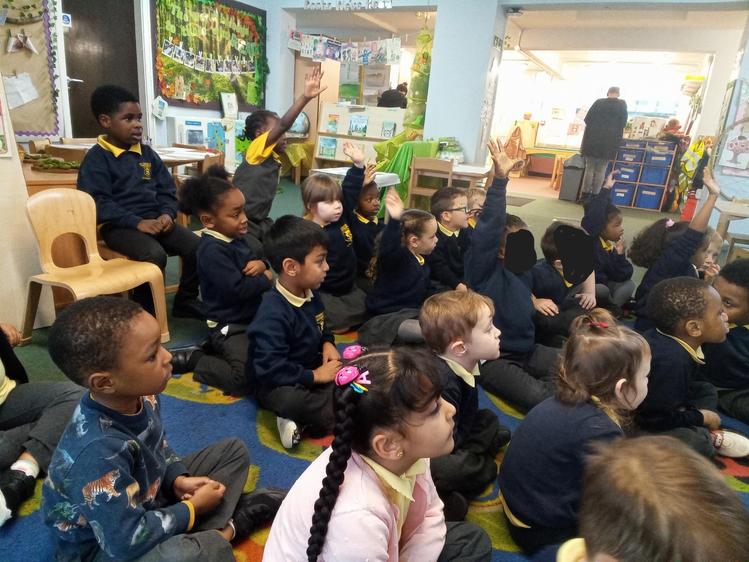
Children in Nursery and Reception also learn about oral health and the consequences of not taking care of our teeth. To further support this, we take part in the Greater Manchester toothbrushing Programme, which gives all EYFS children the opportunity to brush their teeth in school once a day (with parental consent).
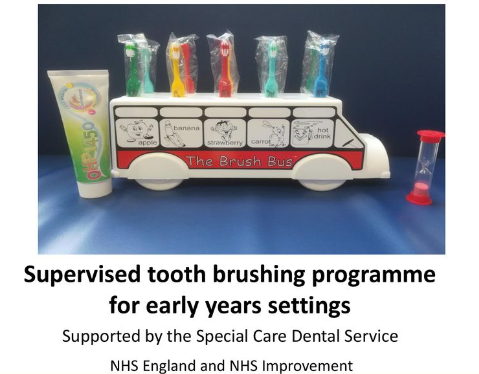

The journey of becoming a strong communicator starts at birth. As part of our transition events and practices, prior to children starting our Nursery (or Reception classes), we focus keenly on where children are up to in this journey, including their strengths and priorities. This enables us to tailor our provision from the outset and to make the best and most informed choices for each child.
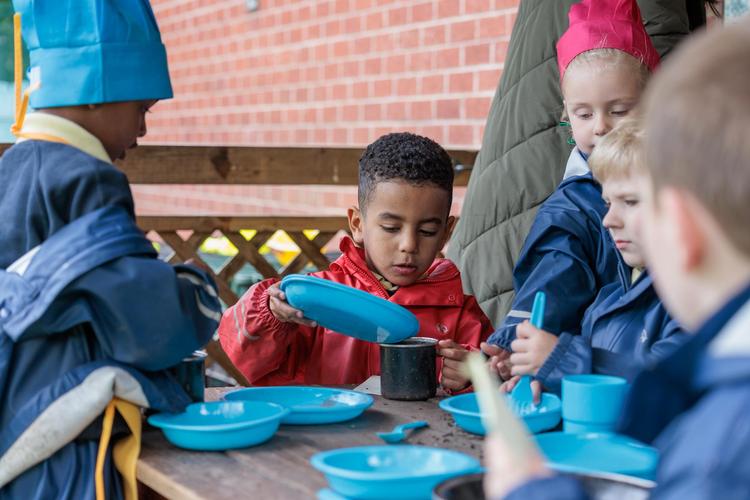
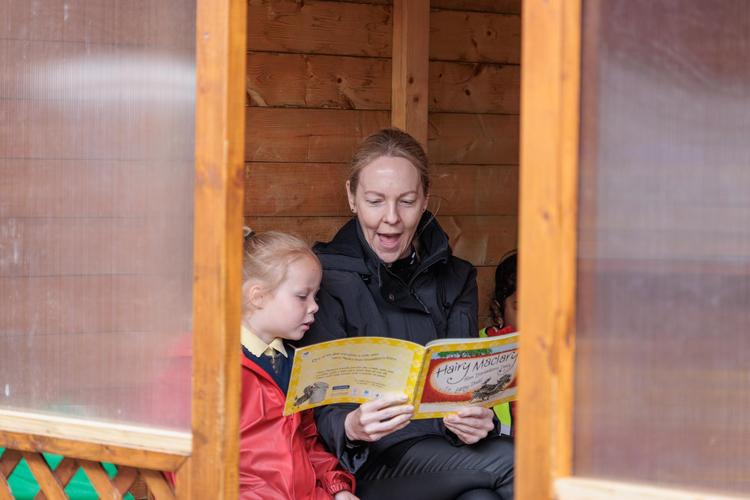
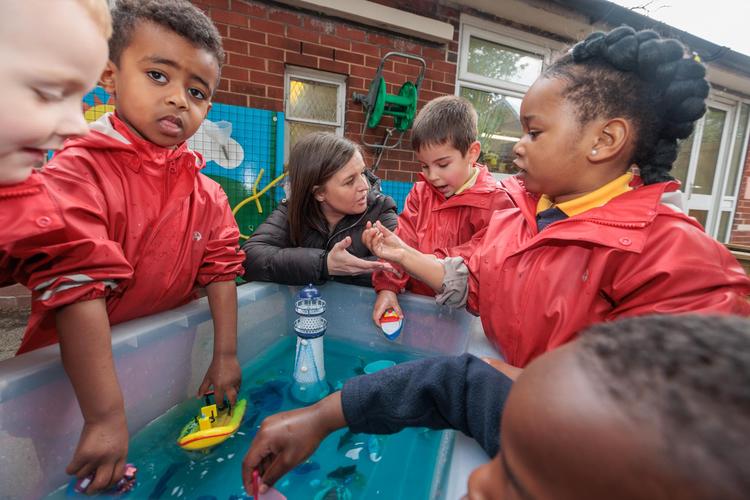
Language allows children to express themselves, explain themselves, share their feelings, ask for help, pose questions and much, much more. It also allows them to understand the needs, feelings and directions of others. Children who are able to use language and be understood are likely to learn, socialise, make friends and build relationships much more easily than their peers who can’t. We make it an absolute priority to support all children to move forward in their ability to communicate, and do so through playful learning, group and 1:1 teaching and timely intervention, liaising with outside professionals, when appropriate.
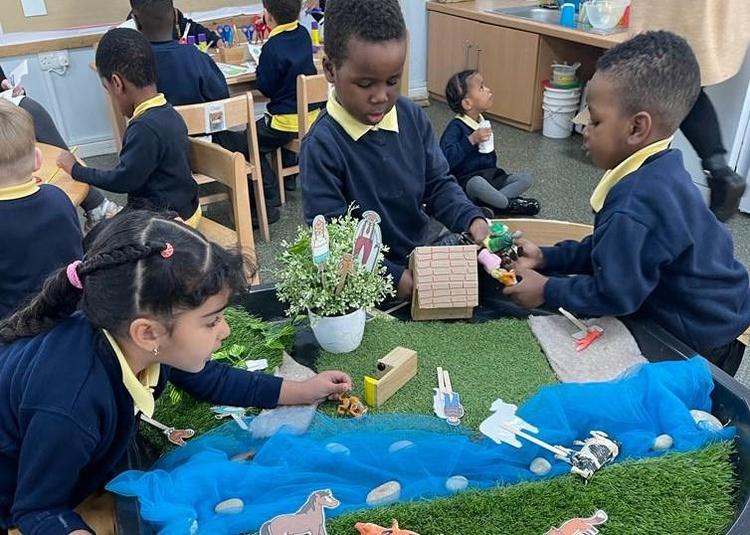
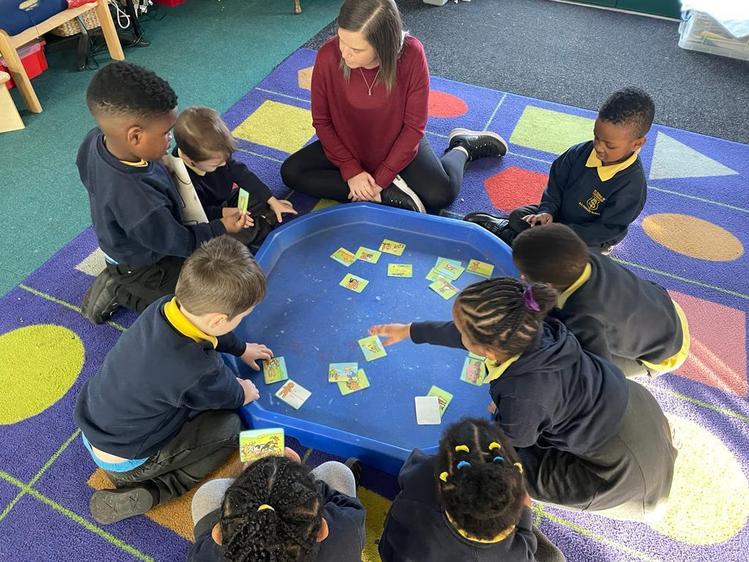
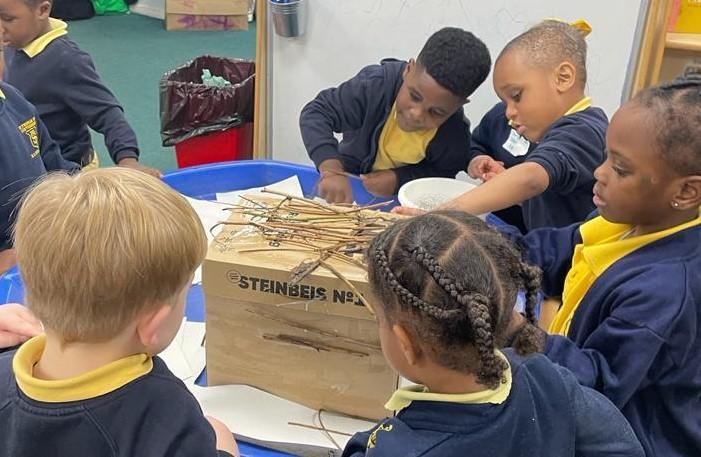
The central thread woven throughout our curriculum and provision is the commitment from all staff to help communication flourish for every child. As a staff team, we recognise that helping children to talk is not merely about asking them questions and expecting answers. We, alongside their parents/carers and families, have a vital role in talking to them: modelling our own words and sentences and sharing our own ideas and plans by ‘thinking aloud’. We aim to continually introduce children to new vocabulary and bring these new words to life through pictures, objects, actions and scenarios. We then seek to revisit vocabulary and repeat ourselves ‘in the moment’ or later on that day or week, knowing that this builds familiarity with new words and increases the likelihood of a new word moving from ‘unknown’ to ‘familiar’ to ‘known and understood’ and hopefully then to part of the child’s own expressive language. As we help children to build their ‘web of words’, we see their ability to express their feelings, ideas and plans grow and grow.
During children’s first term in Nursery, staff make an assessment using the WELLCOMM speech and language toolkit. This highlights each child’s priorities in terms of developing as a strong communicator. Staff then tailor children’s focus group time sessions to work towards these identified goals. (See further information about WELLCOMM in the section below titled ‘Assessment’). All children are also assessed through an ongoing cycle of observation and reflective dialogue amongst staff.
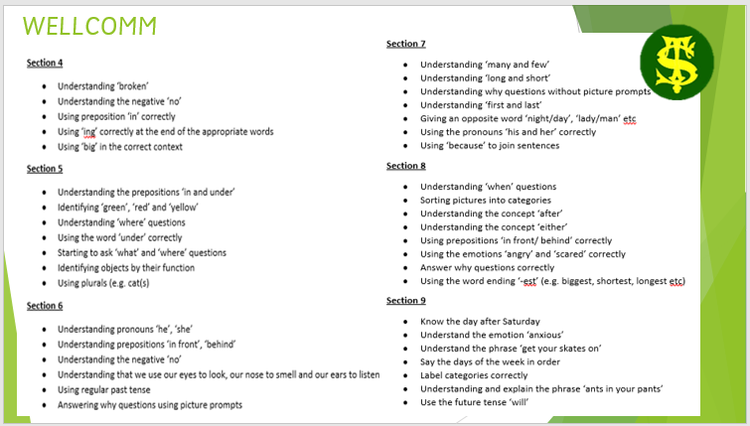
Regardless of outcomes on assessments, our key aim as a staff team is to immerse all learners in a ‘culture of conversation’. Staff are guided by the ELKAN principles of communication and, as a school, we aim to provide direct training in this approach to two members of staff each year as part of their CPD. One key aspect of this approach is for us to ensure that communication with pupils is guided by the 4:1 ratio, pictured below. In achieving this, we seek to create a climate where children feel supported to speak rather than merely instructed to. Children hear us as adults speak more and are given time to tune in, listen and attend. This then builds a scaffold that children can then use to support their own expressive language.
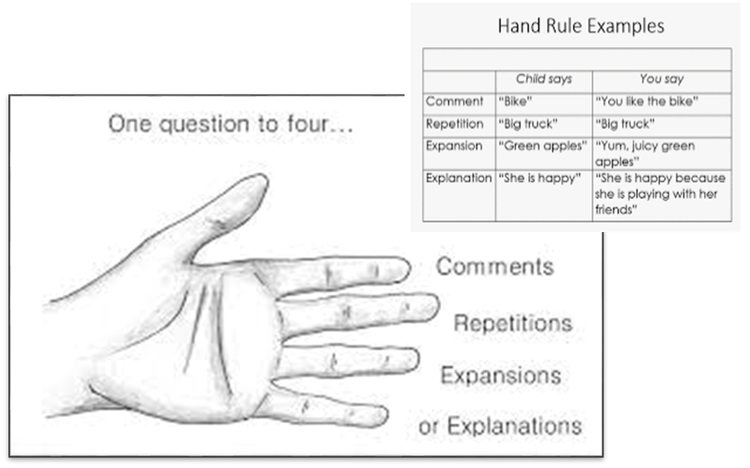
Points to remember…
- Not to fill silence with lots of questions - ask one question to every four comments – remember the hand rule!
- Be aware of the quality and quantity of questions
- Asking lots of questions can mean the adult is checking/assessing and not teaching/extending. This is needed at times, however there should always be far more teaching than assessing!
- Children need to ease into conversation. Though by its nature it is often back and forth, when experiencing new vocabulary and sentence structures, children are likely to mainly listen and try to comprehend and may choose to volunteer some of their own ideas or questions as they think of them. The more their vocabulary and confidence grows, the more they will start to lead
Where staff pose questions to children, both in focus learning and learning through play, they do so guided by the Blank Level Questioning approach, otherwise known as ‘The Language of Learning’. This breaks down the level of difficultly of questions into four categories, shown below. All pupils are assessed on the ‘Test of Abstract Language and Communication’ (TALC) at the start of their Reception year. This tells us the level at which they are currently working and enables us to provide additional 1:1 support, group support and differentiated questioning during our interactions. Our focus is on meeting the children at their current level and scaffolding the steps needed to move to the next level. Children are also incidentally exposed to language learning from the higher levels, through classroom conversations and group teaching. There is never a ceiling on the language they can encounter, learn and use.
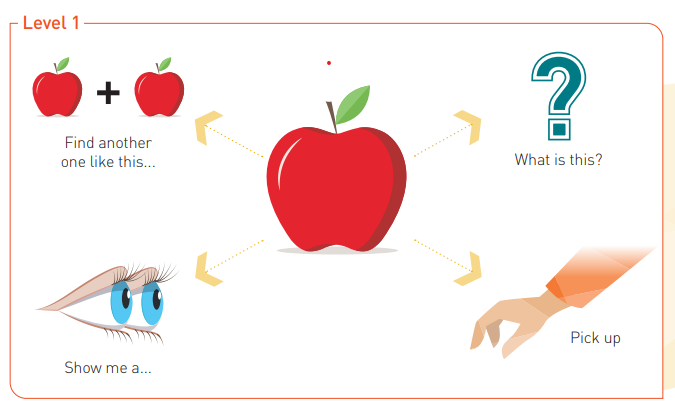
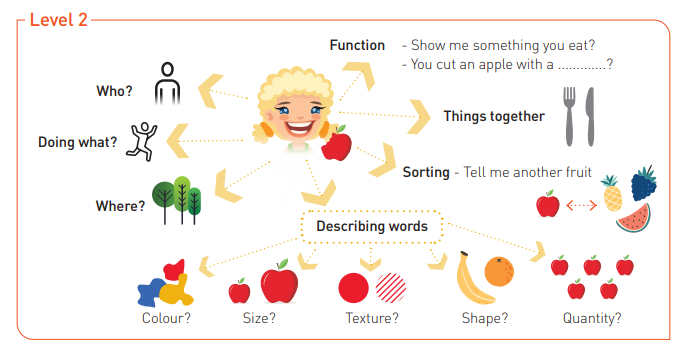
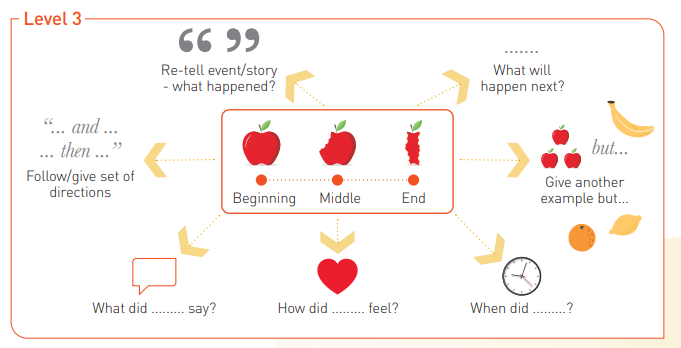
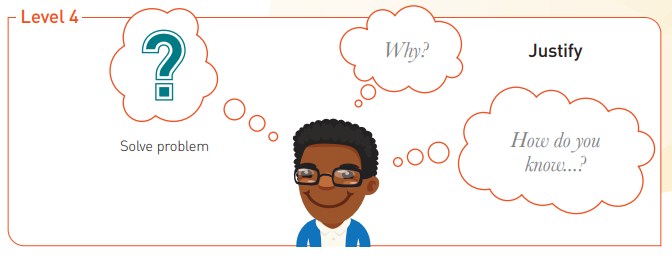
Learning time in Nursery also includes use of the ‘CAN DO music’ programme, which supports listening and attention. For young children, these basic skills of attending to the ‘speaker’ (or in this case musician) and being aware of when it is ‘their turn’ is a vital first step in participating in shared talk and discussion.
The more language children know and understand well, the more easily they can engage with learning sessions and tasks, access and understand new experiences and map new knowledge onto what they already know. Children need to have very deliberate and considerable amounts of exposure to new vocabulary and language concepts, though talk and being read to, in order for this ‘snowball effect’ to occur. A commitment to achieve this for all children runs throughout our Early Years, from Day One in Nursery, and throughout the whole school.

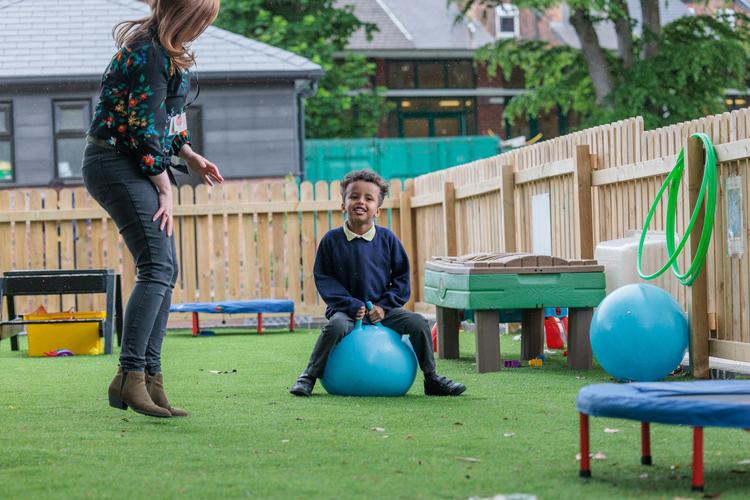
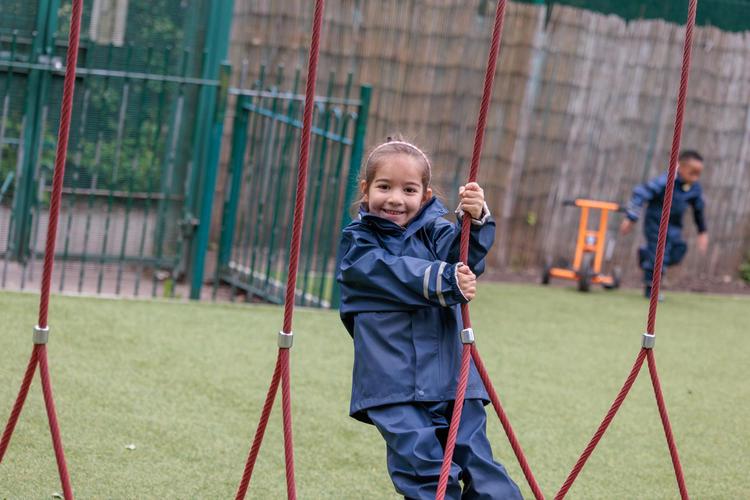
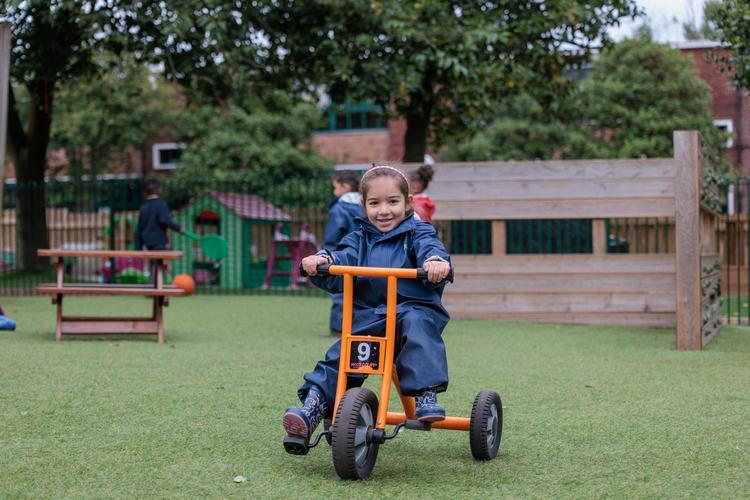
Physical development is a prime area of learning. Confidence here enables children to not only move around and explore their world safely, but also to engage with many new experiences, involving tools and equipment, and indeed adventures, of varying scale.
As hand strength and dexterity grows, children are able to engage with early mark-marking and, with the right teaching and high expectations, this will then start to transform into careful, detailed drawings and carefully formed, well presented handwriting.
Our curriculum provision for Physical Development falls into the following two categories:
Gross Motor Development
- Gross motor skills involve movement of the large muscles in the legs, arms and torso.
- Gross motor skills are important to support everyday functions such as walking, running, skipping, jumping, throwing and climbing.
- We can tend to just associate gross motor skills with the early stages of physical development (when children first begin to walk); however, it is important that we continue to focus on developing these in order to build strength, coordination and skill.
- Gross motor skills are also fundamental in supporting the early stages of writing.
- Children who are most successful with forming letters, are the children who have previously developed strong gross motor control.
- Good core strength supports the posture children need to sit and write and helps support the shoulder, elbow and wrist movement and coordination that is needed to write comfortably.
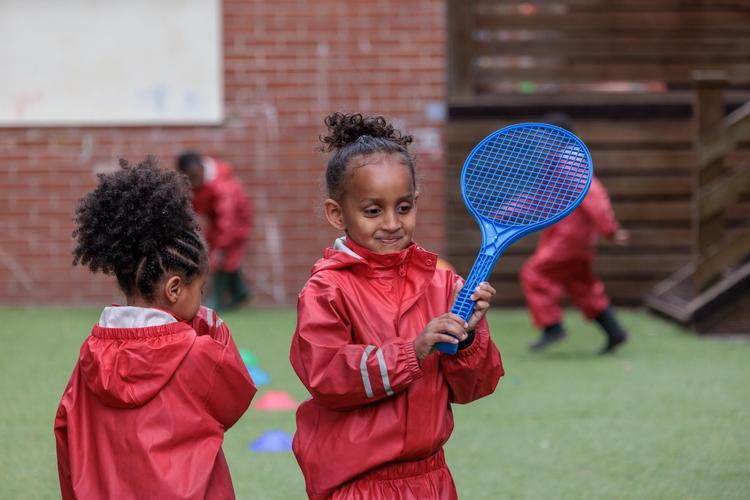
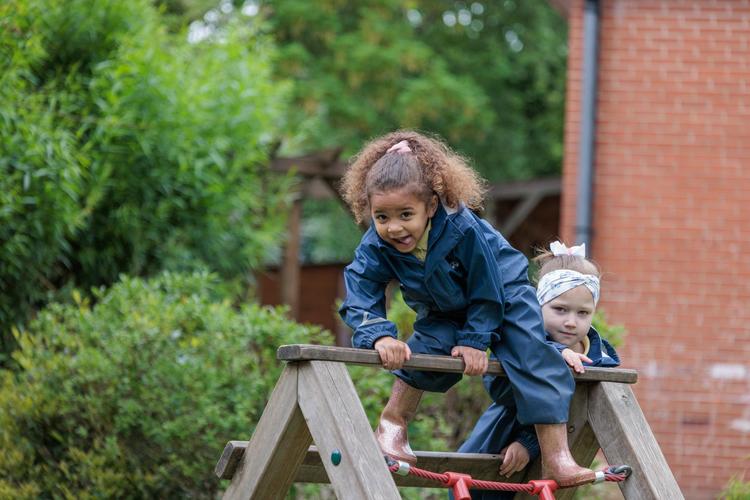
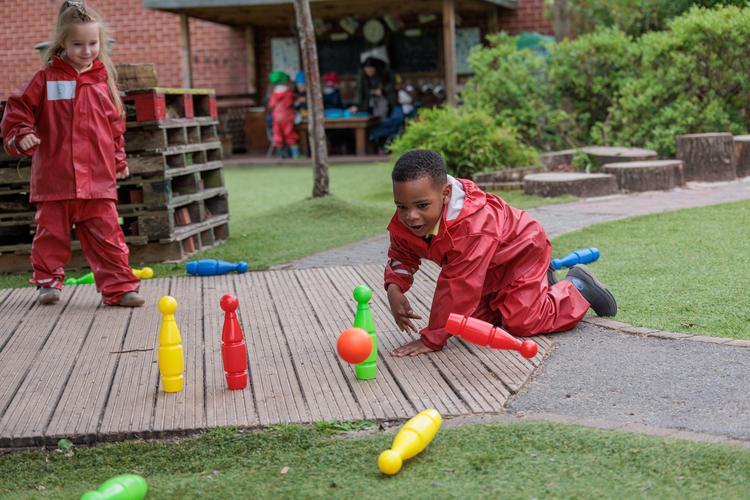
Fine Motor Development
- Fine motor development is the movement of the smaller muscles within the fingers and hands, usually involving hand-eye coordination.
- To begin with, fine motor skills are essential to complete daily routine tasks such as using a fork and spoon, using tools during play e.g. hammer and using cylindrical and digital grasp to mark make.
- Once children have developed good gross strength, it would then be appropriate to expose your child to activities that target the pincer grasp (using the thumb and index finger to manipulate small objects).
- The strengthening of the pincer grasp will support skills such as writing, cutting, threading beads, moving puzzle pieces, zipping and buttoning.
- Early mark making begins with large-scale movements from the shoulder, then is refined to medium scale movements using the hand and forearm. Eventually, with the right amount of time, support and practice, this becomes much more refined using subtle movements of the fingers, hand and wrist, enabling children to produce careful marks on paper and develop these into enclosed shapes, lines and later number and letters.
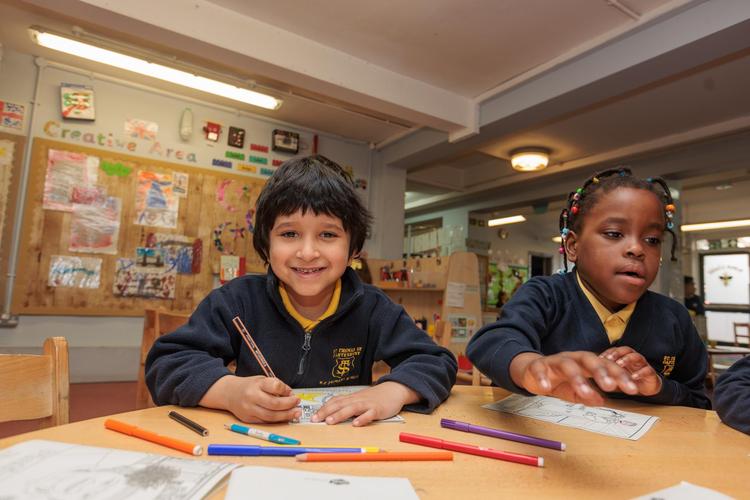
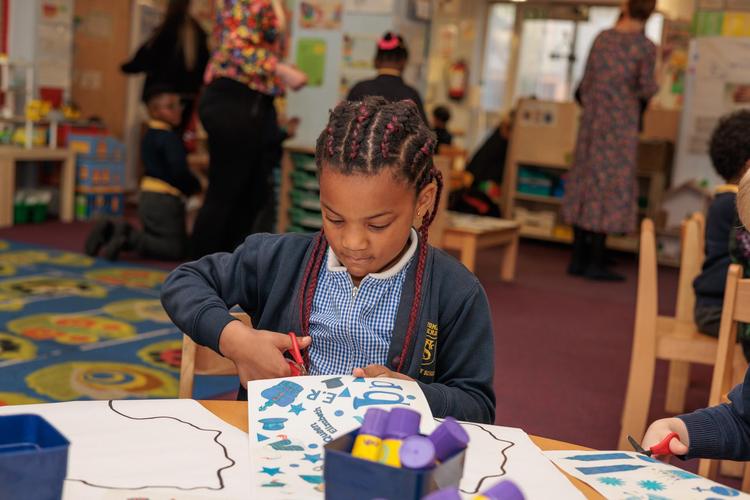
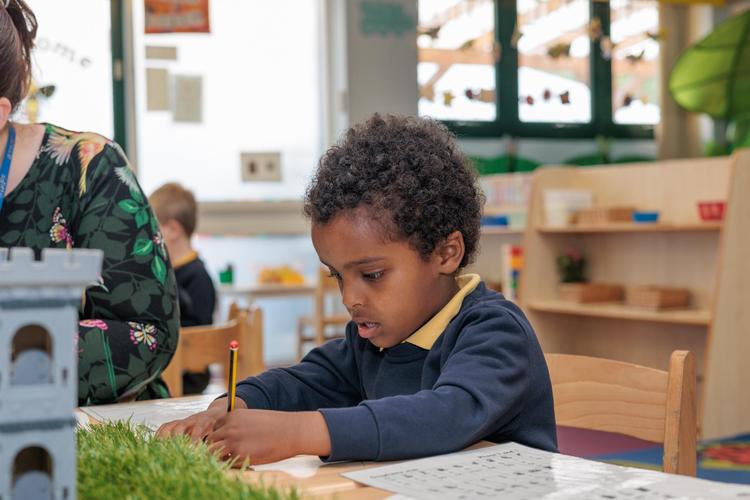
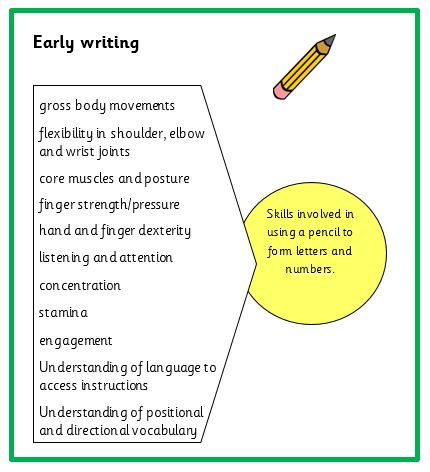
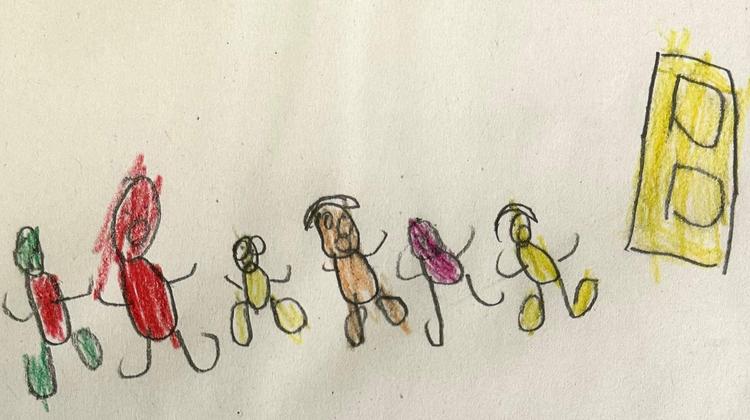
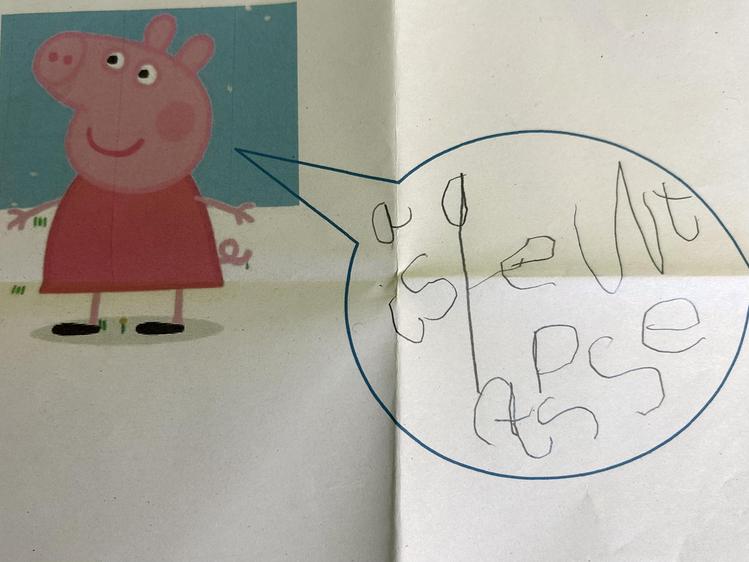
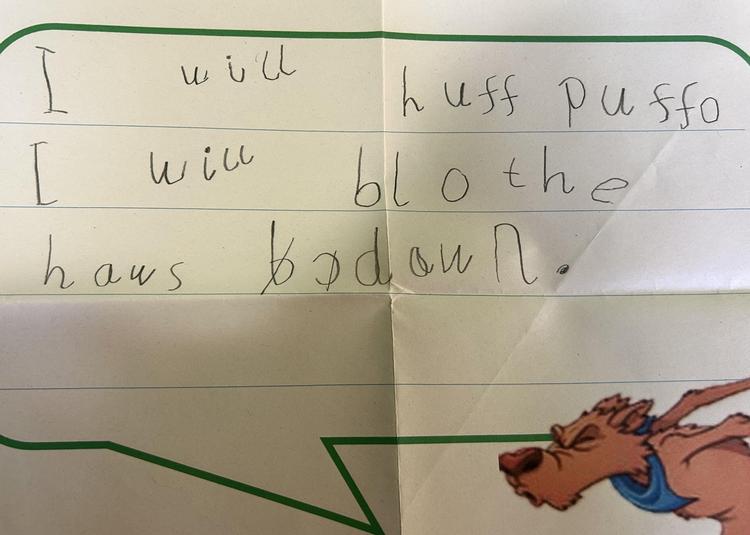
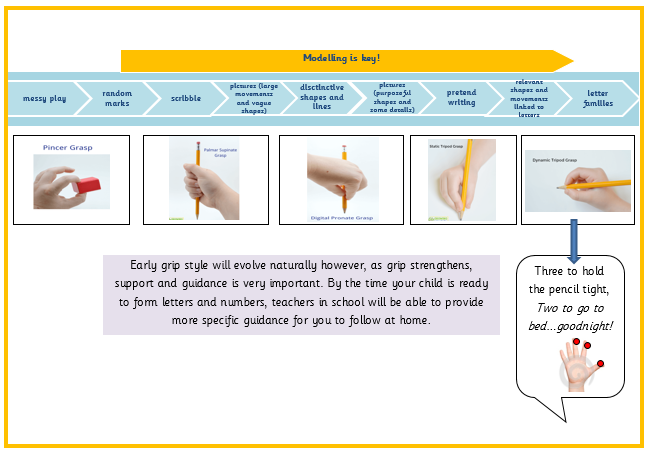
Our curriculum for Physical Development is carefully planned into both direct teaching and continuous provision. Alongside this, we offer a programme of activities from the EYFS ‘Move With’ physical literacy scheme for games and gymnastics.
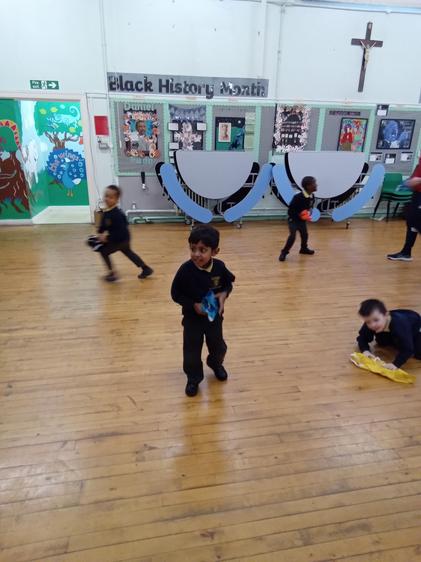
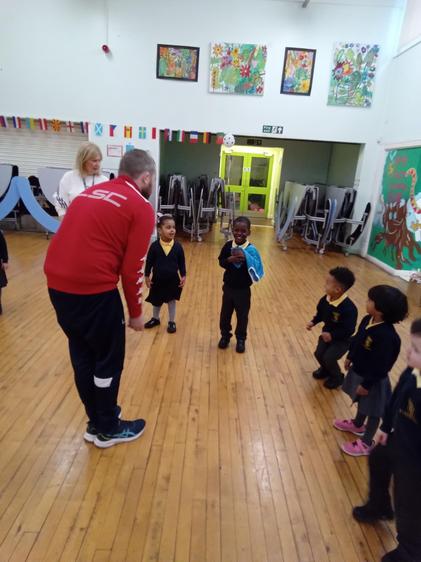
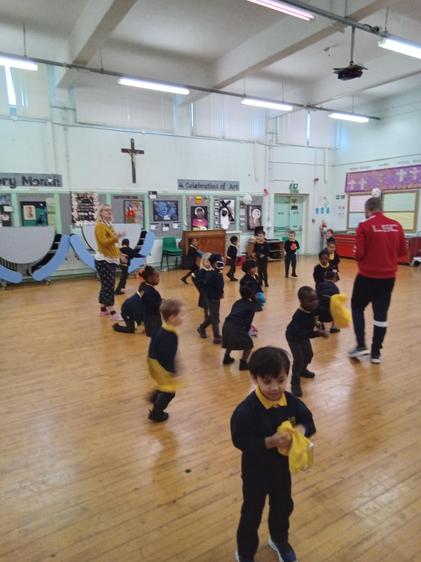
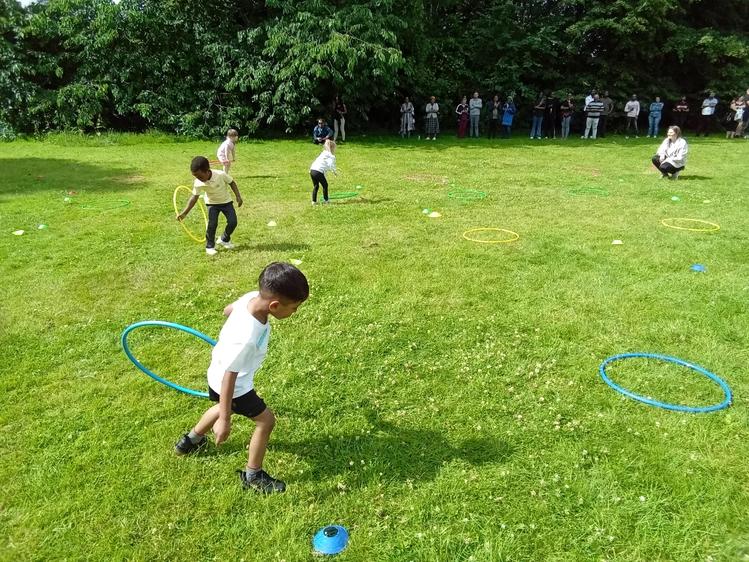
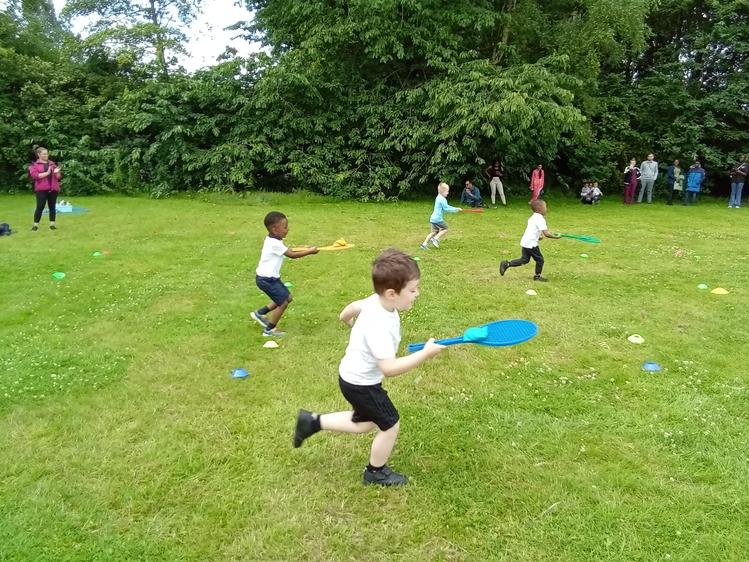
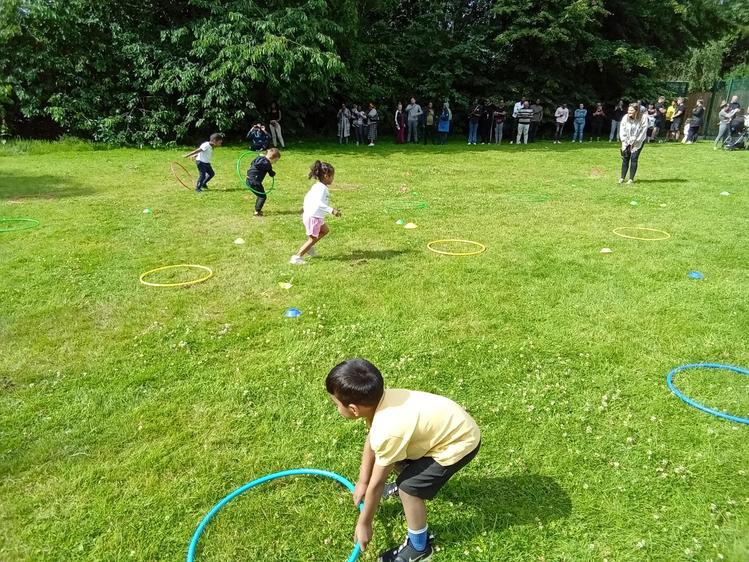
Historically, healthy eating, diet and the need for exercise formed part of the Physical Development curriculum; however, these aspects of teaching and learning now form part of the ‘Personal, Social and Emotional Development’ curriculum.

Learning within Literacy encompasses the skills and knowledge children from Birth to Five develop in Word Reading, Comprehension and Writing; however, it is impossible to consider the teaching of any of these skills without first concentrating on the Prime areas of learning, which are: Communication and Language, Personal, Social and Emotional Development and Physical Development.
.
All aspects of Communication of Language are central to later learning in Literacy, and indeed every curriculum subject that follows. Staff focus heavily on supporting children to tune in and attend (becoming a strong listener), build understanding of vocabulary (including new words and links between words), develop their own vocabulary, grow in their understanding of instructions and explanations and develop their ability to speak, discuss and express their views appropriately. (See further details of how we support these skills in the ‘Communication and Language’ section above.)
Many aspects of Personal, Social and Emotional Development are key to children's ability to engage with and comprehend the feelings and actions of characters in books. To identify the feelings of or empathise with a character, a child must first learn to do this within their own experiences and relationships with others. (See further details of how we support these skills in the ‘Personal, Social and Emotional Development’ section above.) Strong Personal, Social and Emotional development also supports children in how they approach new learning: their mindset, ability to persevere and their willingness to ask for help, when needed.
Physical Development, including gross motor skills to begin with and later fine motor skills, pave the way for children to physically make and refine marks and for this to progress to the formation of the individual letters, which then become the building blocks of sounds, words, captions and sentences. (See further details of how we support these skills in the ‘Physical Development’ section above.)
The strand of our curriculum titled ‘Understanding the World, is one way in which children grow in their understanding of the world around them; such knowledge of events, cultures and concepts becomes a vital part of their 'prior knowledge' when trying to comprehend texts or compose their own writing. Teachers engage children in a range of meaningful topics and, within these, support children to learn and remember some key vocabulary.

The joy of reading, including being read to, is something we want every pupil in our school to experience, from Week One in Nursery and throughout their school years. As a staff team, we work with and support parents and carers, so that every child is immersed in the wonderful world of stories, both at home and in school. Staff provide every child in Nursery and Reception with a Lending Library book twice a week. These make the perfect bedtime story and there's always time to reread them more than once.
Parents and carers of children in our Nursery are welcomed to join us in school and observe story-time. We also invite parents and carers to come and speak to us about reading at any time: we are always happy to talk about the benefits of reading to children and to recommended high quality texts and authors to look out for. Families are encouraged to visit our school library to browse and choose books together, and can do so by following the 'Library Trail' from the school playground daily.
Within the classrooms, books and reading have a very high profile. Our 'Storytime Boxes' are filled with the most wonderful and carefully chosen texts, filled with high quality language and themes which complement our curriculum perfectly. Texts for 'Book Talk' are chosen with the same care and are unpicked over a greater period of time. In Reception, children have specific books linked to our provision areas and they can sit and enjoy these with their friends, as well as the many wonderful stories, non-fiction and poetry books in each class library.
A very important part of our Early Years curriculum for Reading is the teaching of word reading. We teach this daily using our school-adopted programme ‘Little Wandle Phonics’. Phonics learning begins in Nursery with children learning how to orally blend and tune into sounds. For this to be successful, staff in Nursery first establish children's engagement with learning time and support children to develop strong listening and attention skills. Please find this phase of learning to read explained in more detail in the document below titled ‘Key Guidance Foundation for Phonics.
As children move up to Reception, they begin a very systematic programme of phonics teaching, which introduces them to the phonemes (sounds) and graphemes (written representation of the sound) within Phases 2, 3 and 4. Please find more details relating to these key phases in the documents below. As well as direct phonics teaching time, children in Reception have group sessions of reading practice where they can apply the sounds they have been taught to a carefully matched text. This weekly text is then shared on our home reading e-library, alongside a new book of the same level, and children are asked to read both of these books several times at home. This additional practice at home is vital in children developing more and more fluency in decoding the text and using appropriate expression.
As mentioned above, children’s ability to comprehend well, in terms of both what they read and what is read to them, relies heavily on their knowledge and skills within ‘Communication and Language’, ‘Personal, Social and Emotional Development’ and ‘Understanding the World’. See examples below:
Communication and Language
- Listen to longer stories and remember much of what happens
- Understand a wider range of questions
- Ask their own questions to find out more
- Understand and remember new words
- Be able to express a point of view
- Connect one idea to another
- Describe events with increasing detail
- Develop and understanding of social phrases
- Re-tell stories and create their own
- Listen to and talk about non-fiction, building familiarity with new knowledge and vocabulary
- Use new vocabulary in different contexts
Personal, Social and Emotional Development
- Express their own feelings and consider the feelings of others.
- Think about the perspective of others
- Show sensitivity to the needs of other people.
Understanding the World
- Recognising and understanding the meaning of words they encounter in books that relate to the world around them e.g. breeze, harbour, heron, mountain
- Compare and contrast characters in stories e.g. their culture, the time in which they live, their beliefs etc.
- Understand the lives of people around them and their role in society e.g. a nurse, a vet, a pilot etc
- Understand how things were different in the past (e.g. toys, technology etc) and explore some examples of how things were unfair in the past.(gender inequality and race inequality)
Children first learn to develop comprehension of language through talk and meaningful conversations with parents, siblings, friends and staff in school. This ability to make sense of words and sentences is then applied to books they hear. The more children are talked to and read to, the stronger their ability to comprehend becomes. Being able to read and understand what you have read is essential to all future learning and indeed so many everyday experiences in life.
In school, children listen to and enjoy stories during a daily ‘Story-time’ session; the focus here is purely on relaxing and enjoying the book. Every Monday, pupils vote for the story-time book out of a choice of two. These are most often fiction, but sometimes non-fiction or poetry is offered instead. Adults will often model 'Book Talk' before or after reading; this is where we 'think aloud' in anticipation (e.g. I wonder if there is going to be a problem in this book? I think the problem might be a storm.') and also in reflection (e.g. I thought that Billy was going to find the perfect present, but in fact he is finding it difficult. I hope when we continue reading next time that someone will come to help him.)
Pupils also listen to and unpick a key text within and across different Literacy group times. Staff help children to understand new vocabulary, often using visuals to help, and to discuss the characters, events and resolution within each story. There are always linked experiences dotted around the classroom provision that help children to revisit the theme and events of the book shared. In addition, children love sharing and joining in with nursery rhymes and poems. During the school year, each class learn several key rhymes or poems off by heart and have opportunities to recite and perform these at the front of class and sometimes even in assembly.
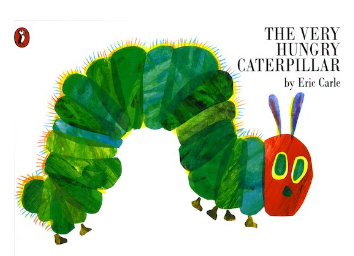
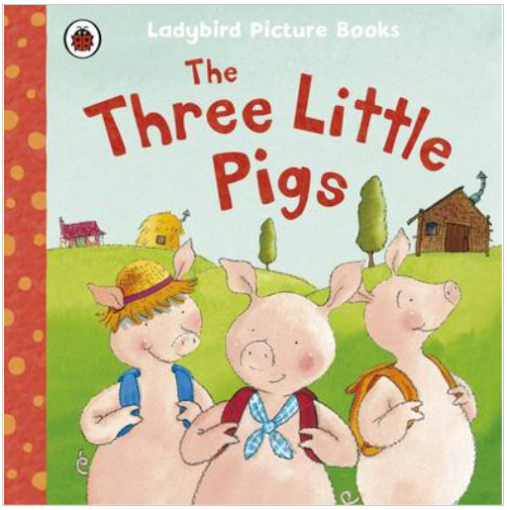
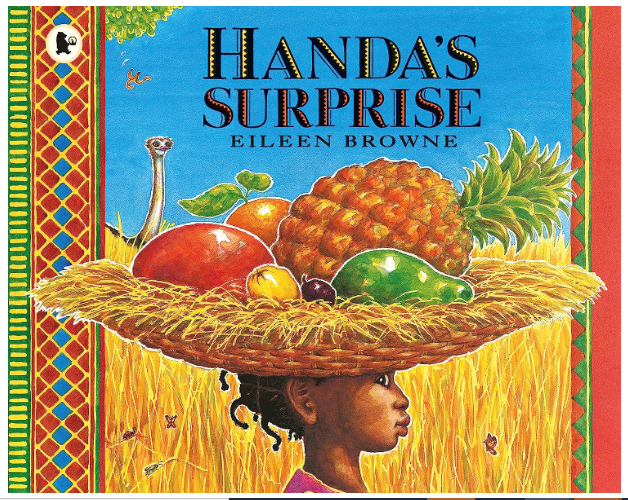
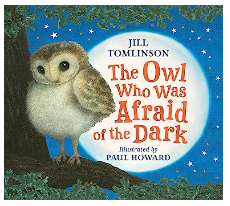
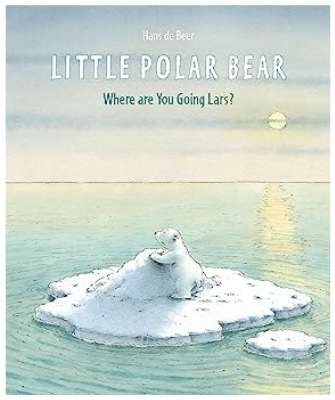
As well as fiction, children in all classes discover the wonder of information through a range of non-fiction texts linked to a current topic or the interests of pupils. With support, they begin to notice some of the key features and enjoy, for example, choosing an item from the contents list and locating the information by finding the correct page number.
As a school, we could never emphasise enough how much all children benefit from being read to at home every evening.
Did you know that reading just one book a day to your child for a whole year results in them hearing around 78,000 words!
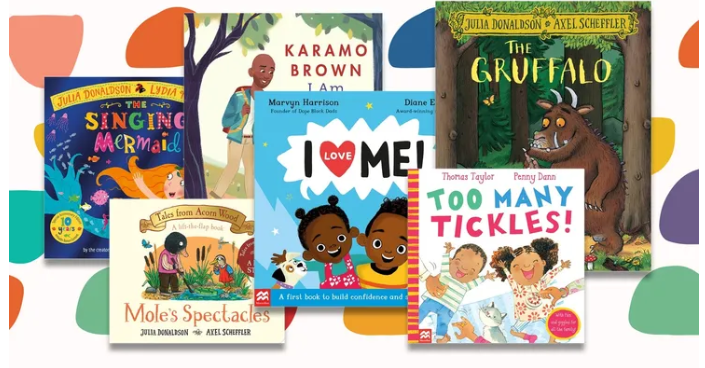

Our writing curriculum is designed and delivered with the intention of empowering pupils to communicate via the written word with excitement and purpose. In a world where most written communication is typed or texted, it is vital to model writing by hand to children and share with them the many purposes of such writing: picture labels, shopping lists, letters and much more.
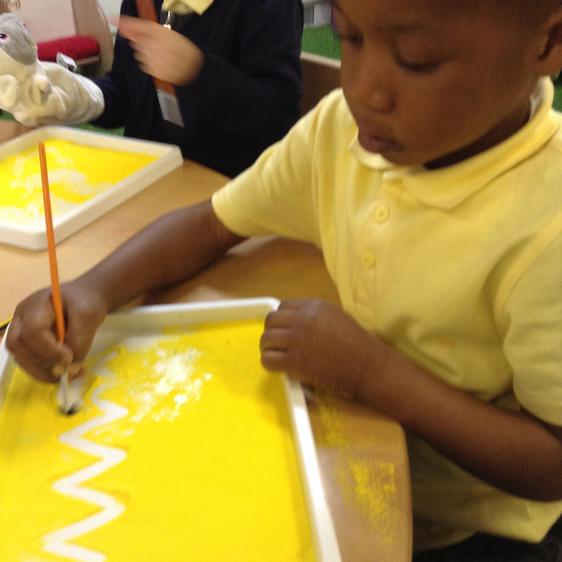
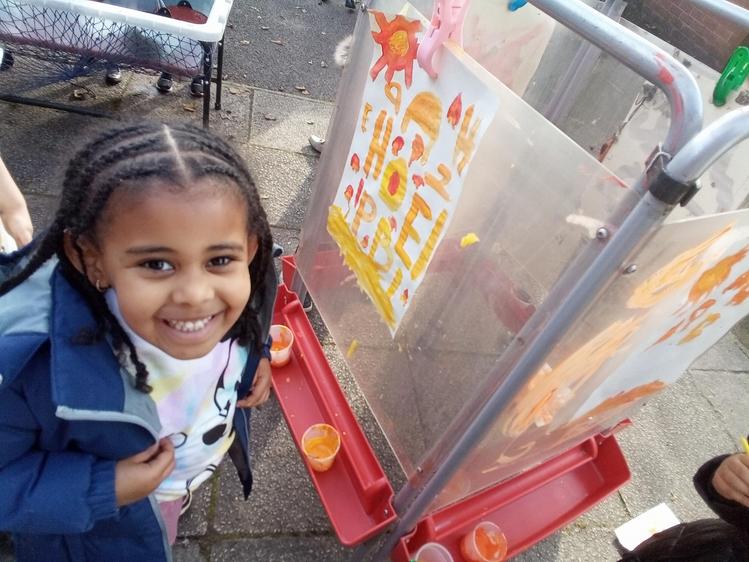
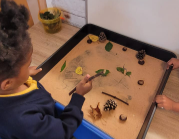
With so many writing implements readily available in both Nursery and Reception, children soon discover the wonderful marks that they can make! An exciting step is when these marks change from purely exploratory to intentional and a child shares the meaning behind their marks, be that a picture of something, a word or even their name. Our provision is set up to enable children to explore making marks in as many ways as possible – inside and outside – and to talk about these marks to their teachers and peers.
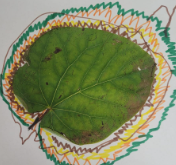
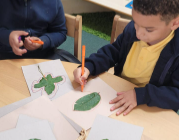
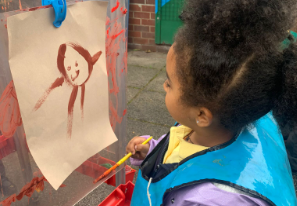
To ensure our children are confident and successful in this early writing journey, we pay great attention to the development of gross and fine motor skills (please find this detailed above in the section titled ‘Physical Development’). If children are ‘not on track’ in these physical skills, staff will provide additional support and intervention and speak to parents/carers about how to support at home. Whole body movement, strength and coordination, plus finger strength and dexterity, all play a role in being able control a pencil comfortably and effectively.
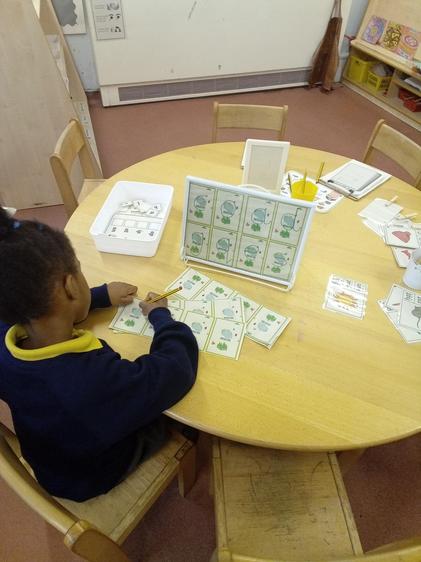
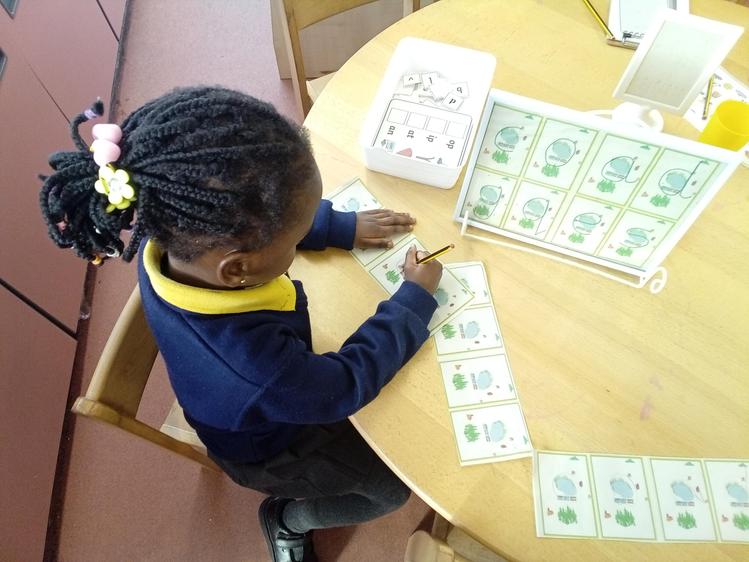
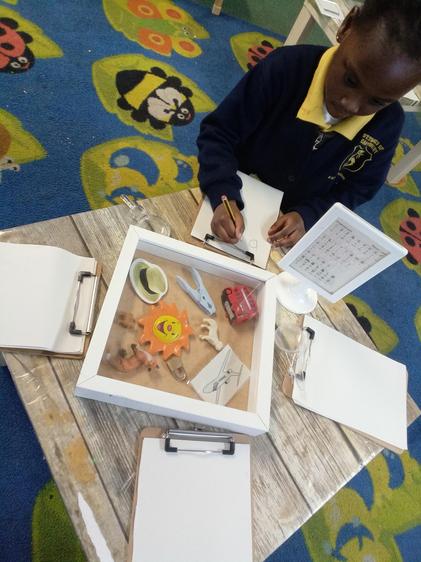
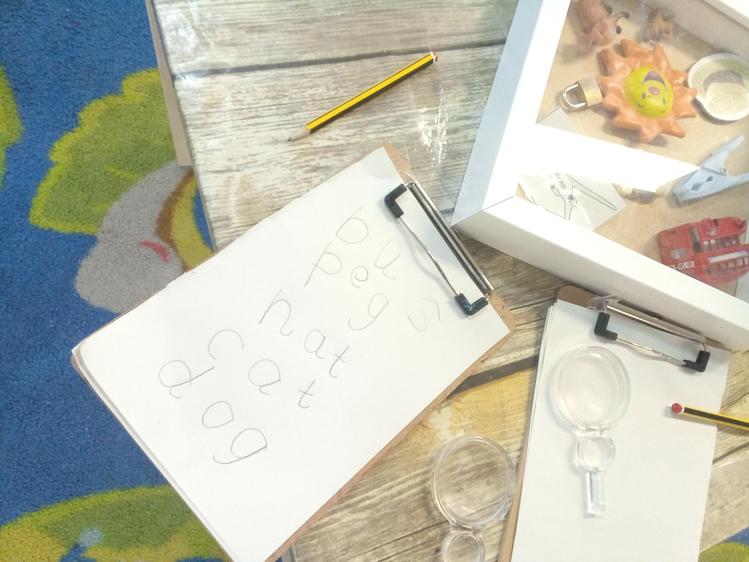
Two key skills in Nursery, which precede forming letters, are: forming an anticlockwise circle and retracing a vertical line. When children are taught and supported to do and practice these, it increases the likelihood they will start to form letters in the correct sequence, rather than 'imitating letters' (using an incorrect starting and finishing paint).
As children move to Reception, letter formation within the Phonics lesson is introduced. Children are taught how every sound (phoneme) has a corresponding written form (grapheme) and that sometimes the written form is composed of two or even three letters (diagraphs and trigraphs). All of this is taught systematically, so that children can learn, know and remember. Outside of Phonics, children also encounter our ‘Mr Pig’ adventure stories, which add a ‘directional’ element to formation, helping children to visual the ‘path’ of each letter and avoid reversals. They also spend time learning about 'invisible ladder' letters, helping them to retrace the vertical line in the right place within certain letters.
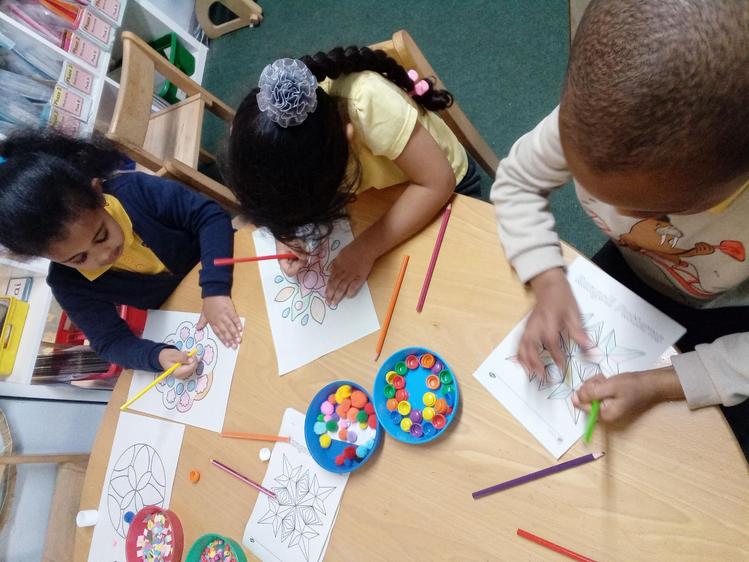
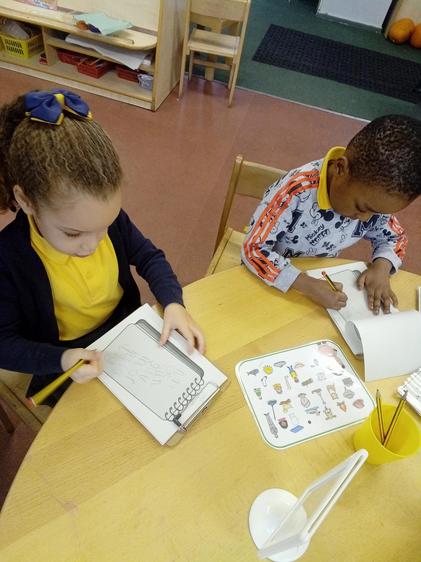
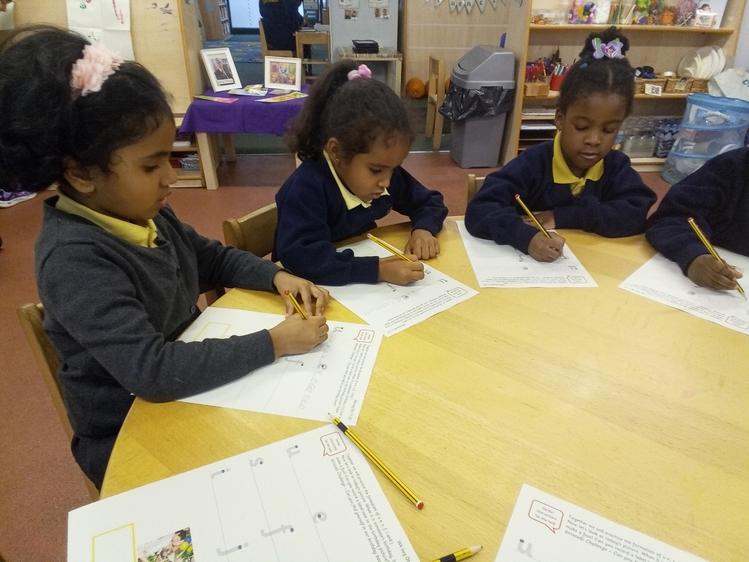
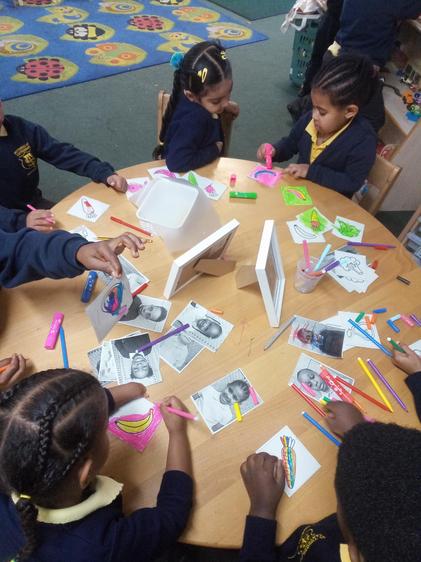
Children in Nursery progress naturally through early grip styles and this is largely driven by their whole body movements and ability to move their shoulder and arm and cross their centre line. As children move into Reception, staff assess their control, pressure and grip and begin to more explicitly teach the ‘tripod grip’. Children are supported to position their fingers and write comfortably. Writing aids, such as pencil grips, are sometimes used for a short period of time with a small number of pupils. Staff also promote good posture when writing and teach children how to position their 'non-writing' hand. They support children to progress to resting their writing arm on the table and create movement of the pencil using their fingers and thumb (known as a 'dynamic tripod').
Throughout the year, there are lots of opportunities to mark make and write in play provision, but also more structured opportunities, including modelled, shared and guided writing with the teacher.
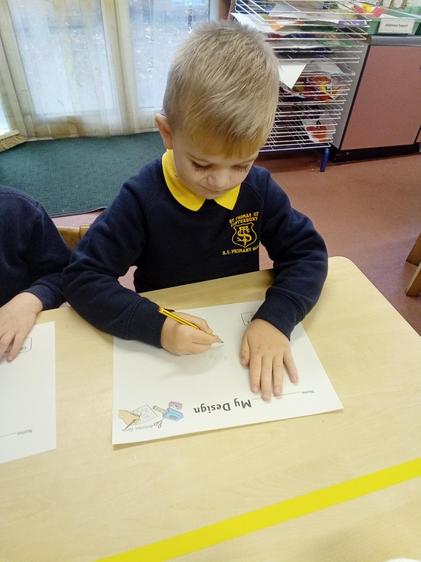
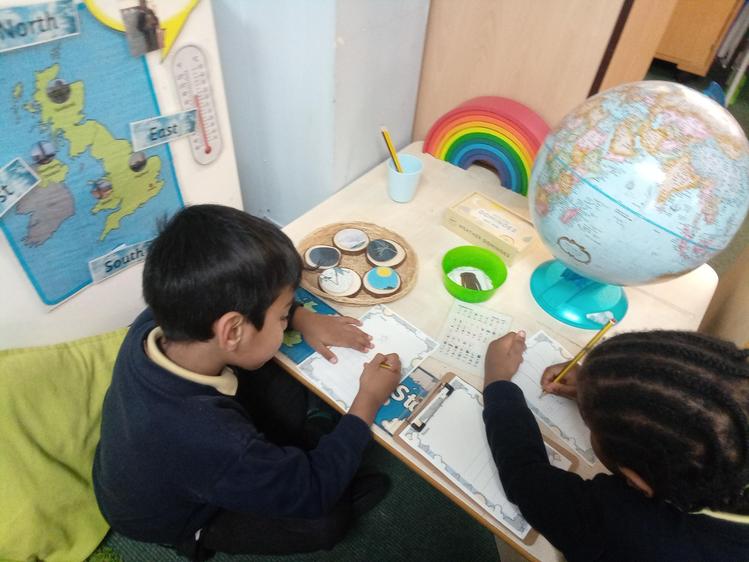
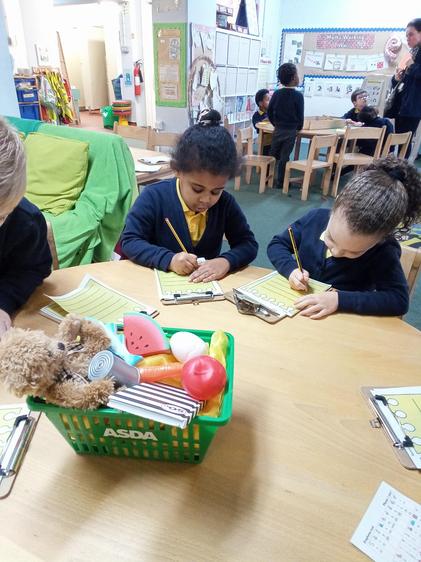
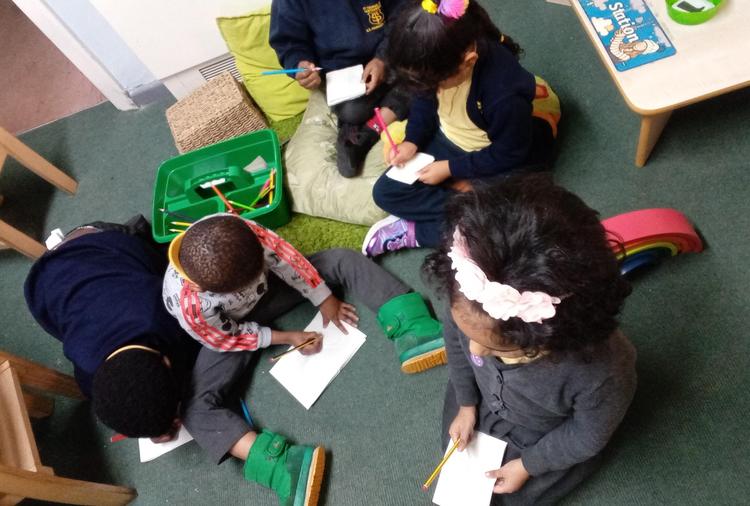
Alongside the physical journey as a writer, our Early Years Curriculum places great importance on the children having ideas for writing. This comes through language development, including pupils’ ability to have views and express ideas. Also of unquestionable importance, is the imagination that children develop through play and through being read to on a very regular basis (at school and at home). This is a huge investment for future success, as once all the physical and ‘transcriptional’ challenges of writing are mastered, pupils become 'higher-level' writers based on the content and style of their writing.
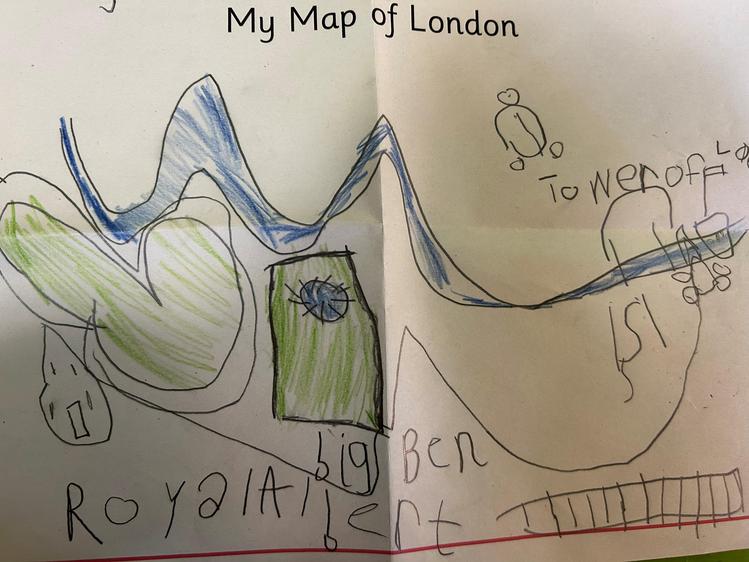
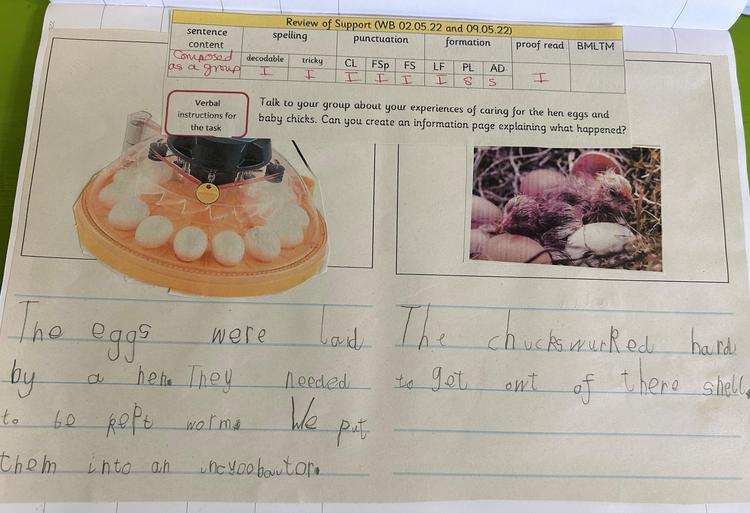
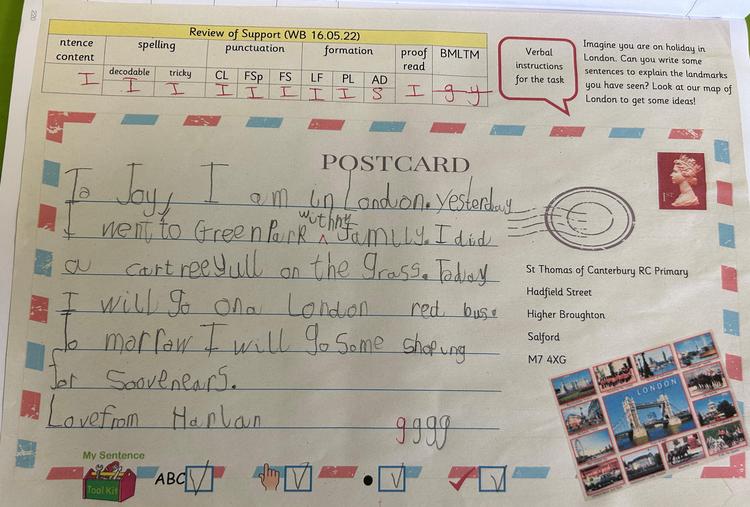

At St Thomas of Canterbury, we understand that early Mathematics begins long before they enter the school gates for the first time, and how this is demonstrated through curiosity & play. A child's innate curiosity is the basis for life-long learning. We can encourage it best by encouraging their questioning and fascination, rather than knowing all the answers. In EYFS, we acknowledge our role to facilitate & inspire early exploration of Maths to support children in reaching their full potential.
In early years, our mathematical journey follows the sequence of learning detailed in the development matters document, whilst also considering the small steps needed to achieve key mathematical skills. Our learning and progression sequence identifies the developmental stages in early Maths from Birth to the end of Reception and how they should be approached through small progressive steps. The sequence has been organised into termly & weekly blocks across Nursery & Reception, however we identify that each child should move through the journey at their own pace, and should only move onto larger numbers & new concepts if prior learning is secure. In EYFS, children enjoy 3 adult initiated Maths sessions a week, they also participate in daily mental & oral sessions, as well as the children having access to rich & stimulating learning environment (indoor & outdoor) that facilitates exploration of early number & shape.
Children move through the sequence of learning, securing Mathematical skills to achieve the Early Learning Goals at the end of Reception. Children are assessed each term, to identify progress & next steps.
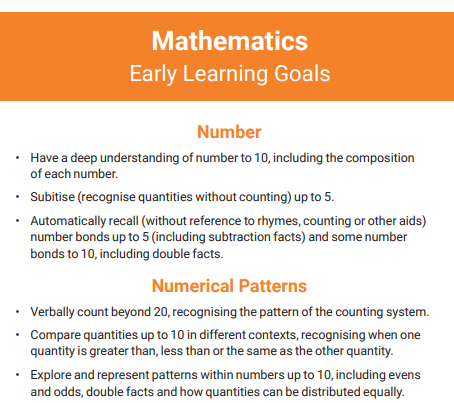
There are six key areas of early mathematics learning, which collectively provide a platform for everything children will encounter as they progress through their maths learning at St Thomas of Canterbury RC Primary School, and beyond:
1. Cardinality and Counting
Understanding that the cardinal value of a number refers to the quantity, or ‘howmanyness’ of things it represents
2. Comparison
Understanding that comparing numbers involves knowing which numbers are worth more or less than each other
3. Composition
Understanding that one number can be made up from (composed from) two or more smaller numbers
4. Pattern
Looking for and finding patterns helps children notice and understand mathematical relationships
5. Shape and Space
Understanding what happens when shapes move, or combine with other shapes, helps develop wider mathematical thinking
6. Measures
Comparing different aspects such as length, weight and volume, as a preliminary to using units to compare later
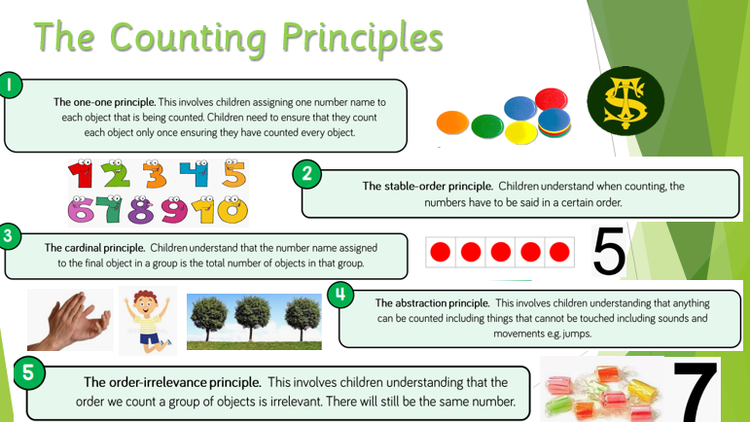
Counting Strategies
During Maths lessons, we explore the different ways we can count. We call these our counting strategies. We develop the children’s problem solving skills by equipping them with the techniques to approach learning challenges successfully!
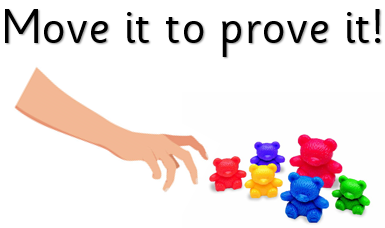
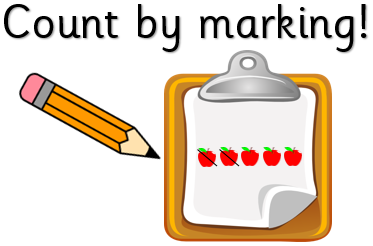
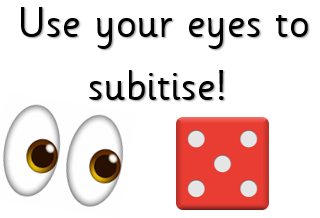
Developing the children’s number sense, and understanding that number is all around us is an integral part of their learning journey. Therefore, we plan opportunities for children to develop their mathematical awareness within our home learning challenges. This may through number walks in the local area, or visiting a supermarket to see real experiences of how number is used in our daily lives.
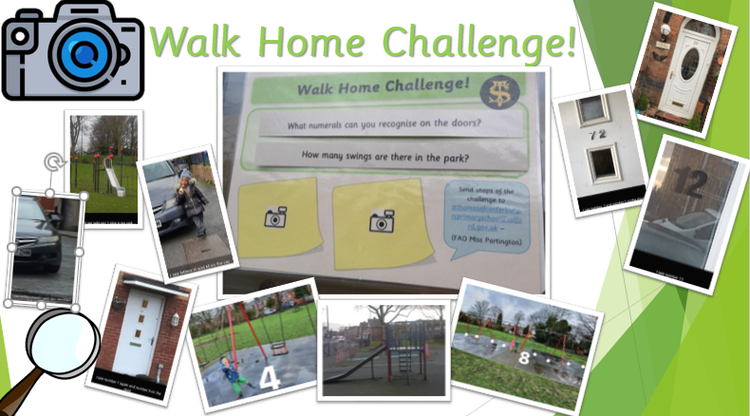
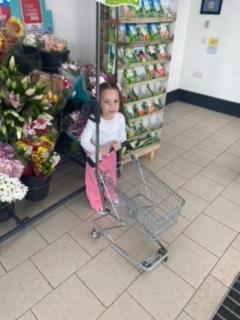
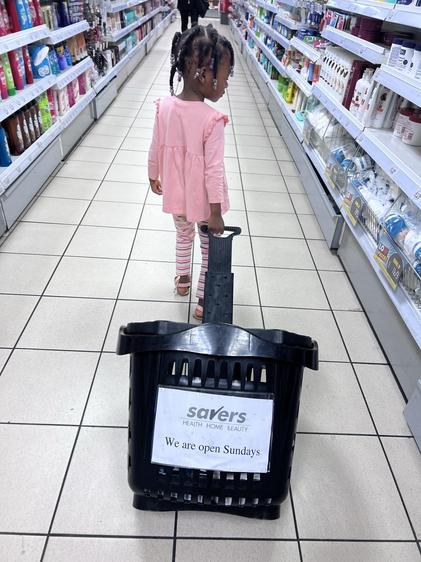
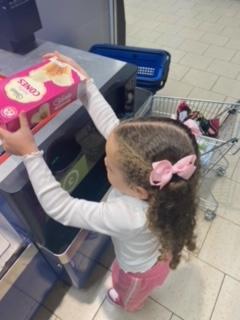

We, as a school, understand that it can be hard for a parent to gain a true understanding of their child’s curriculum and what is being focused on in Key subjects. To help address this we offer a variety of parent workshops throughout the school year:
- Preparation for Success: Key skills that help a child to be ready for their school journey
This workshop covers:
- The Social and Emotional aspects of learning
- The importance of Communication
- Self-help skills and why they matter
- Physical Development
- Dispelling myths about learning
- Storytelling Workshop in Nursery
This workshop covers:
- Observe a storytelling session
- Introduction to the lending library system
- Guidance on storytelling
- Mark Making into Writing in Nursery
This workshop covers:
- The mark making journey from Birth - 5
- The importance of physical development
- Pencil control support
- Addressing misconceptions with letter formation
- Early Maths in Nursery & Reception
This workshop covers:
- The counting principles
- The Learning Journey
- Achieving Mastery in the early years
- The Walk Home Challenge
- Supporting the Maths Journey at home
- Maths stay & play
- Reading and Phonics in Reception
This workshop covers:
- The Characteristics of Effective Learning
- School systems for the teaching of Reading
- Why Phonics matters
- The ‘Letters and Sounds Programme’ and the key phases within it
- Blending and Segmenting skills
- Making phonics fun
- Home reading (including reading and being read to)
In addition to these, we meet parents on a 1:1 basis at our school Parent’s Evenings. This provides the opportunity to update parents on their child’s progress and current priorities, and also helps parents to understand how their child’s stage of learning compares with the age related skills and understanding set out in the Development Matters Framework and, towards the end of the Reception year, with the statutory Early Learning Goals.

For information regarding EYFS staff & the transition process to our school, follow the link to our EYFS parent page below.
